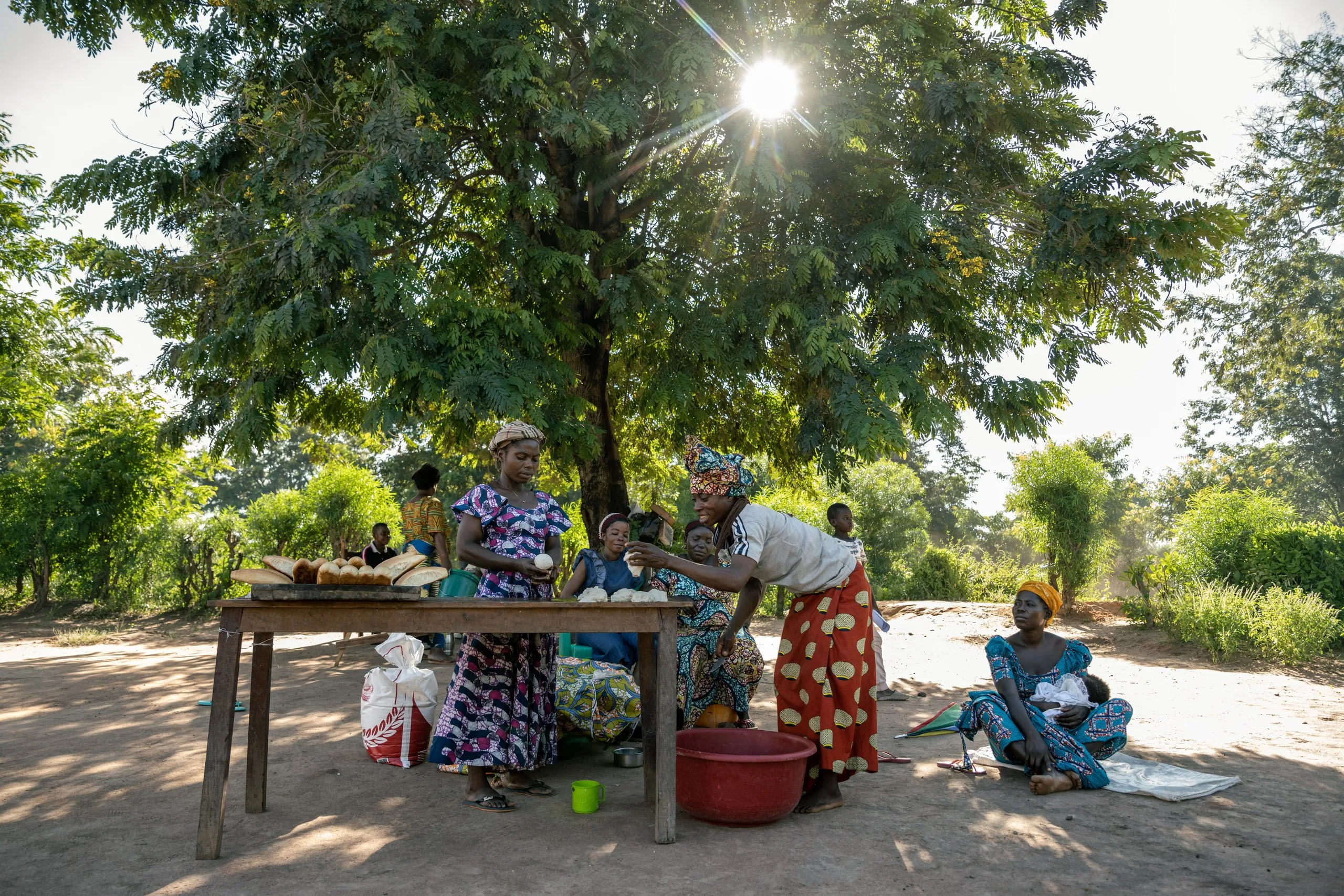Chapter 02
Women reclaiming leadership
Scroll to read the full story
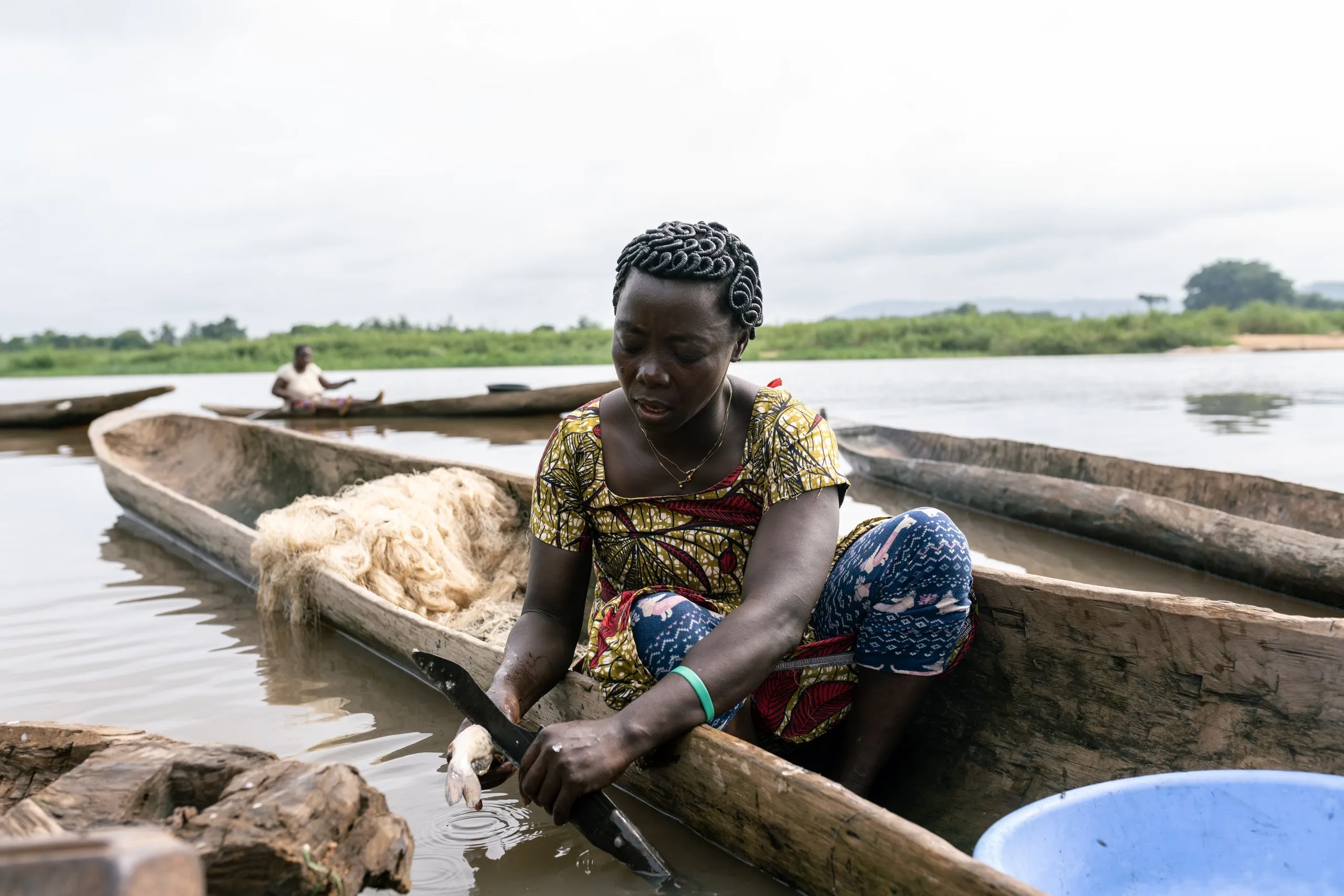
Women make up half of the population in the Democratic Republic of the Congo and play essential roles in their families, communities, and the economy. Yet, for many, the ability to read and write is still out of reach, especially in rural regions. In some regions like Western Kasai, the gap in education is even more pronounced.
Source: World Bank (2022)
Limited
Opportunities
When women lack access to literacy, their voices are often left out of key decisions. It limits their opportunities, their independence, and the ability to fully shape the future of their communities.
Despite these challenges, women continue to lead.
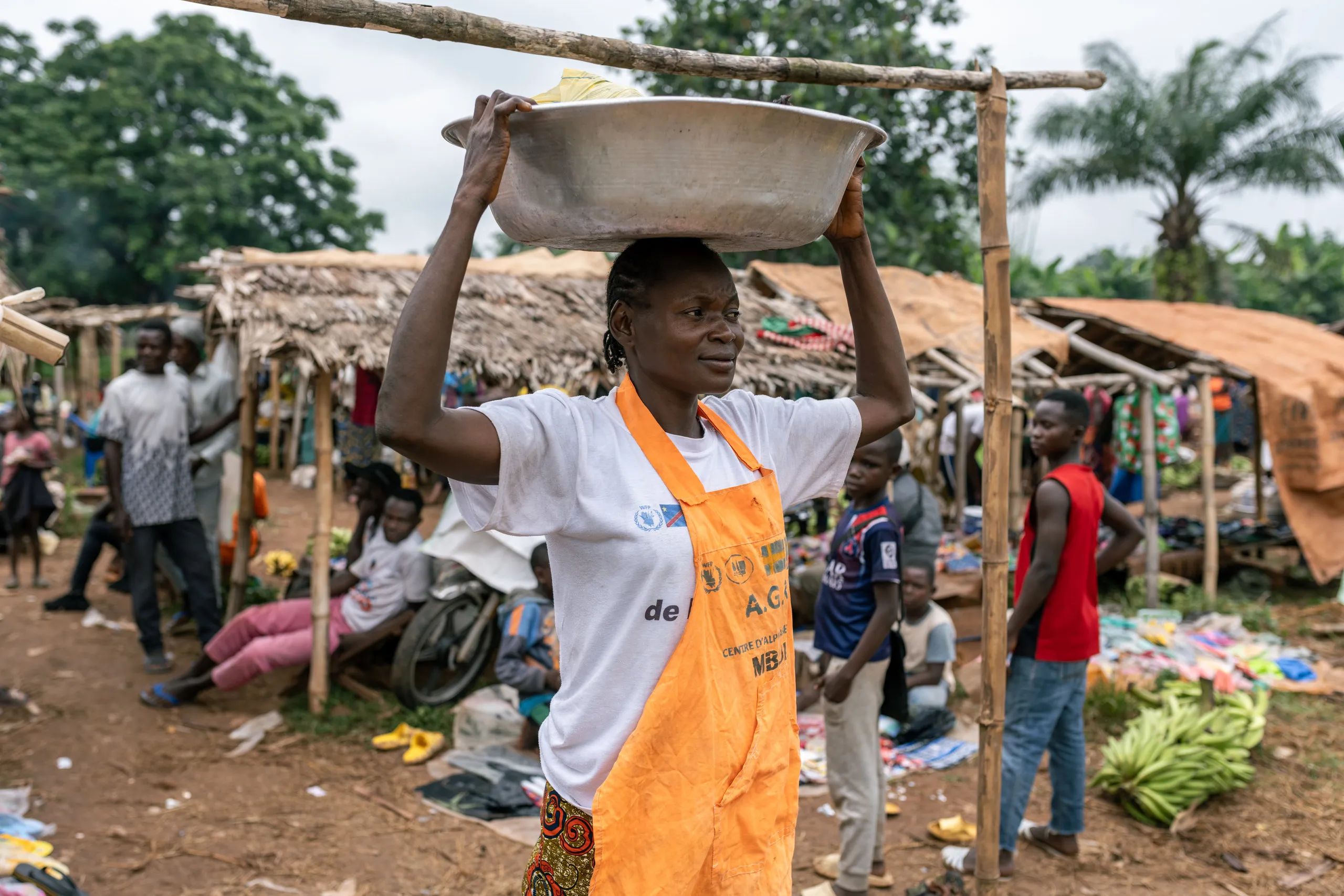
Whether cultivating crops, managing small businesses, or supporting their families, their contributions are vital.
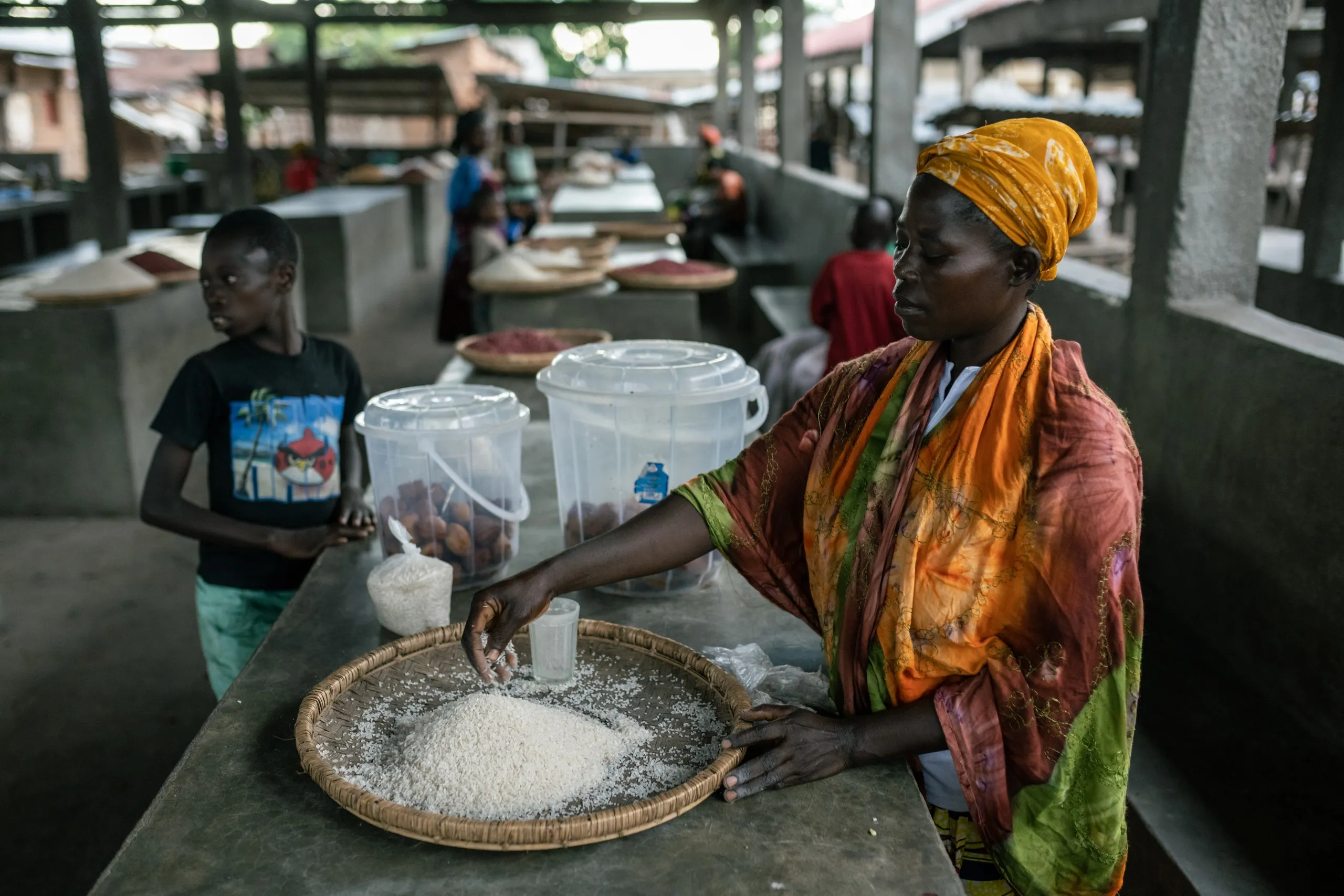
Yet, salaried job opportunities remain scarce, especially in roles that offer stability
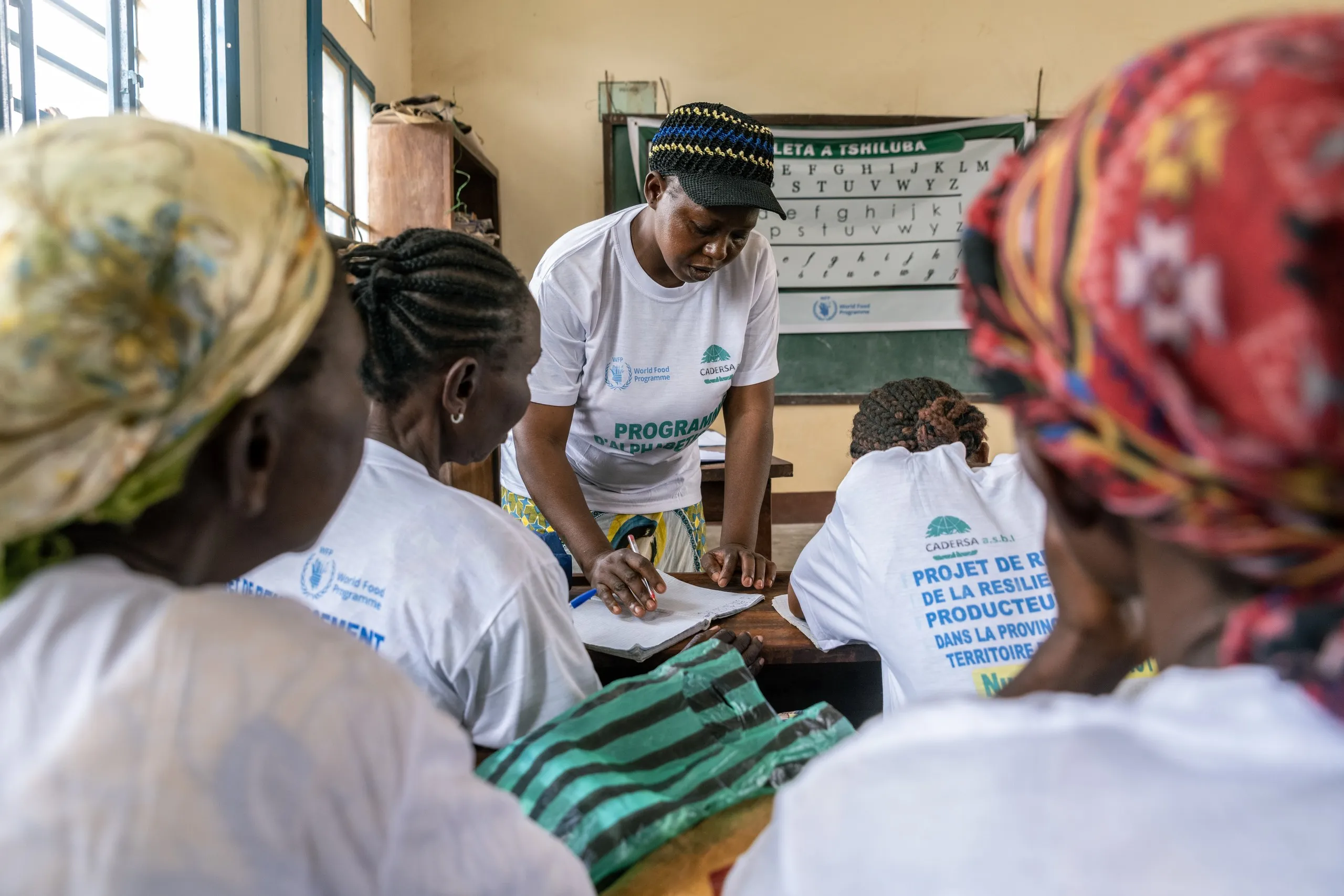
and long-term growth.
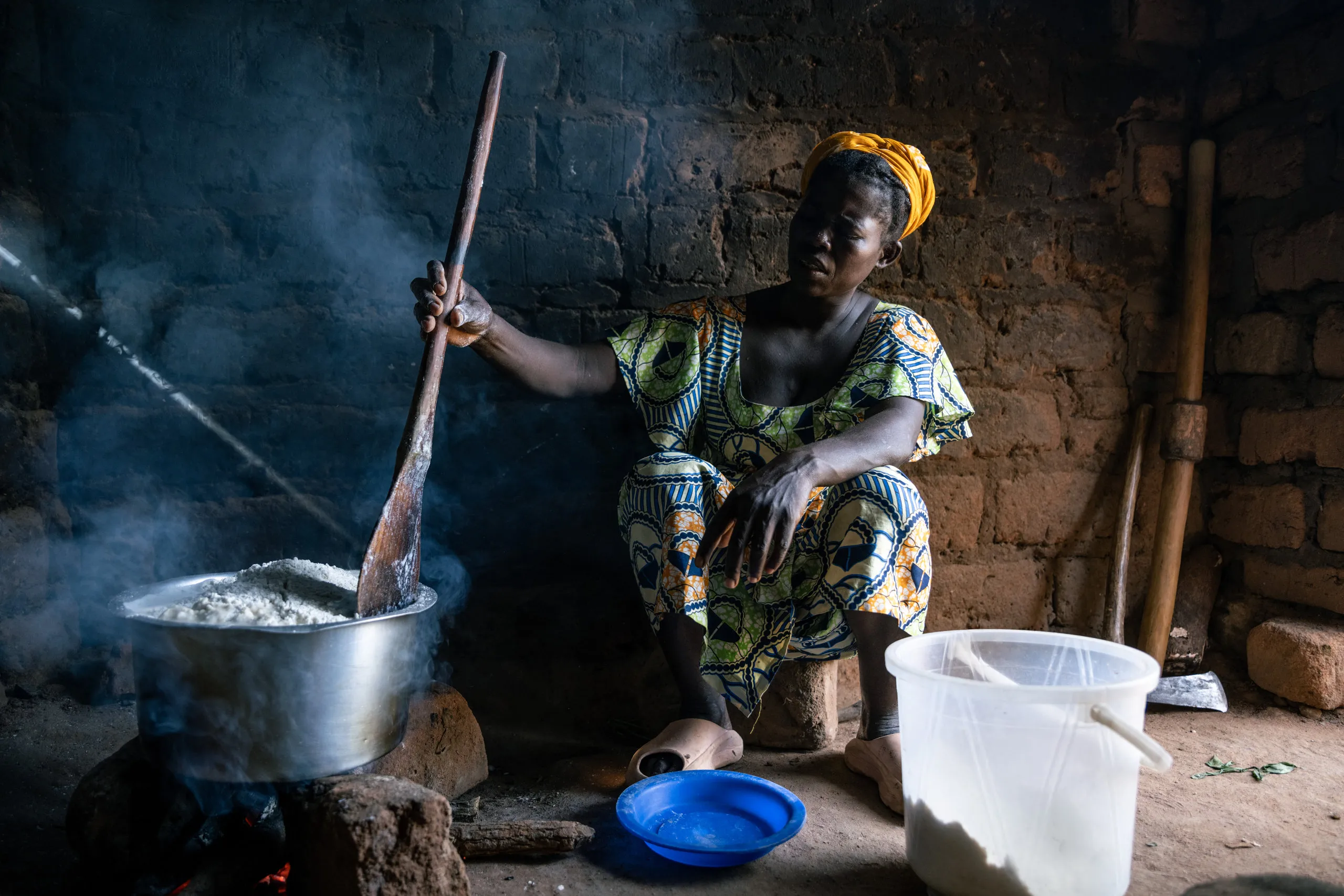
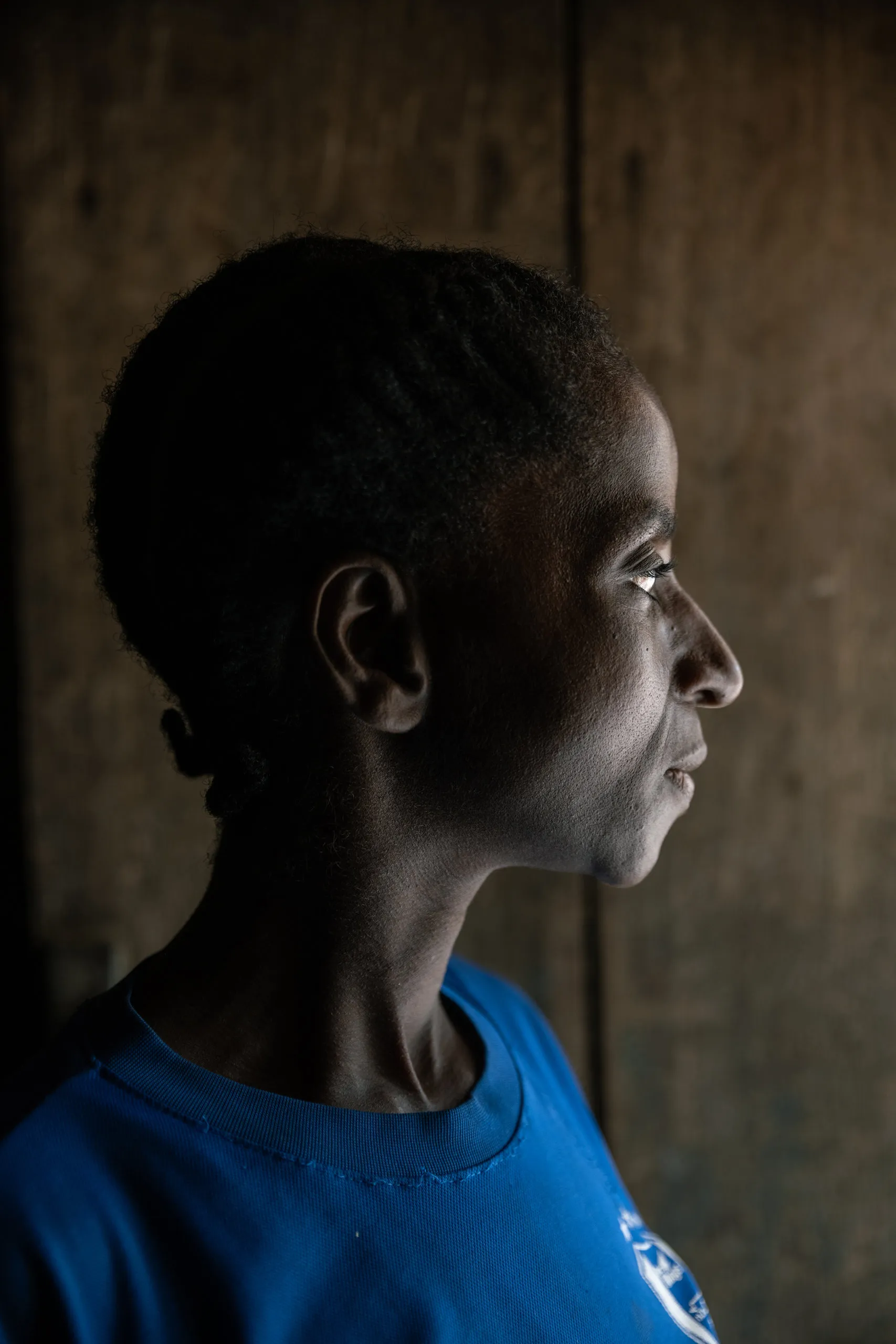
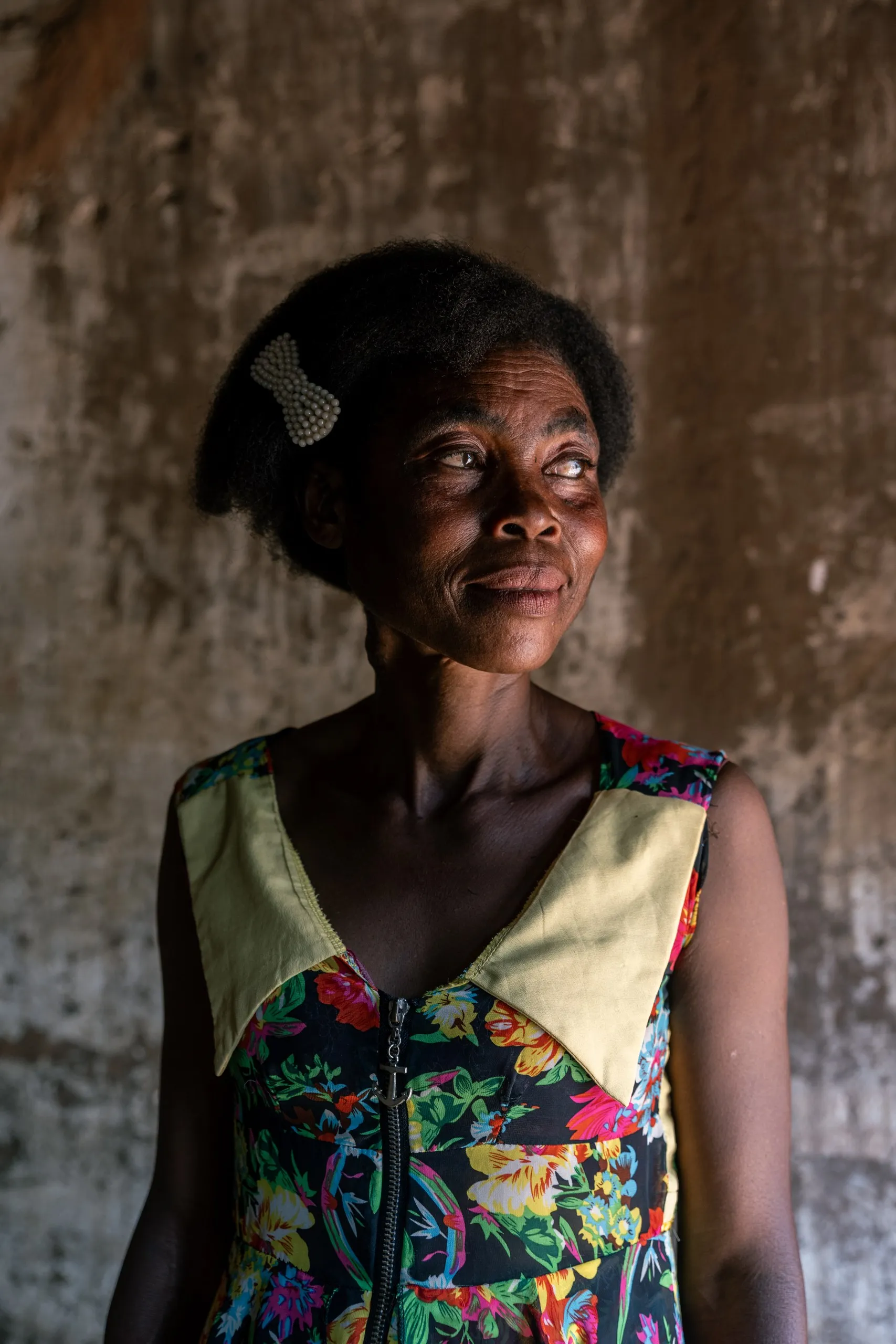
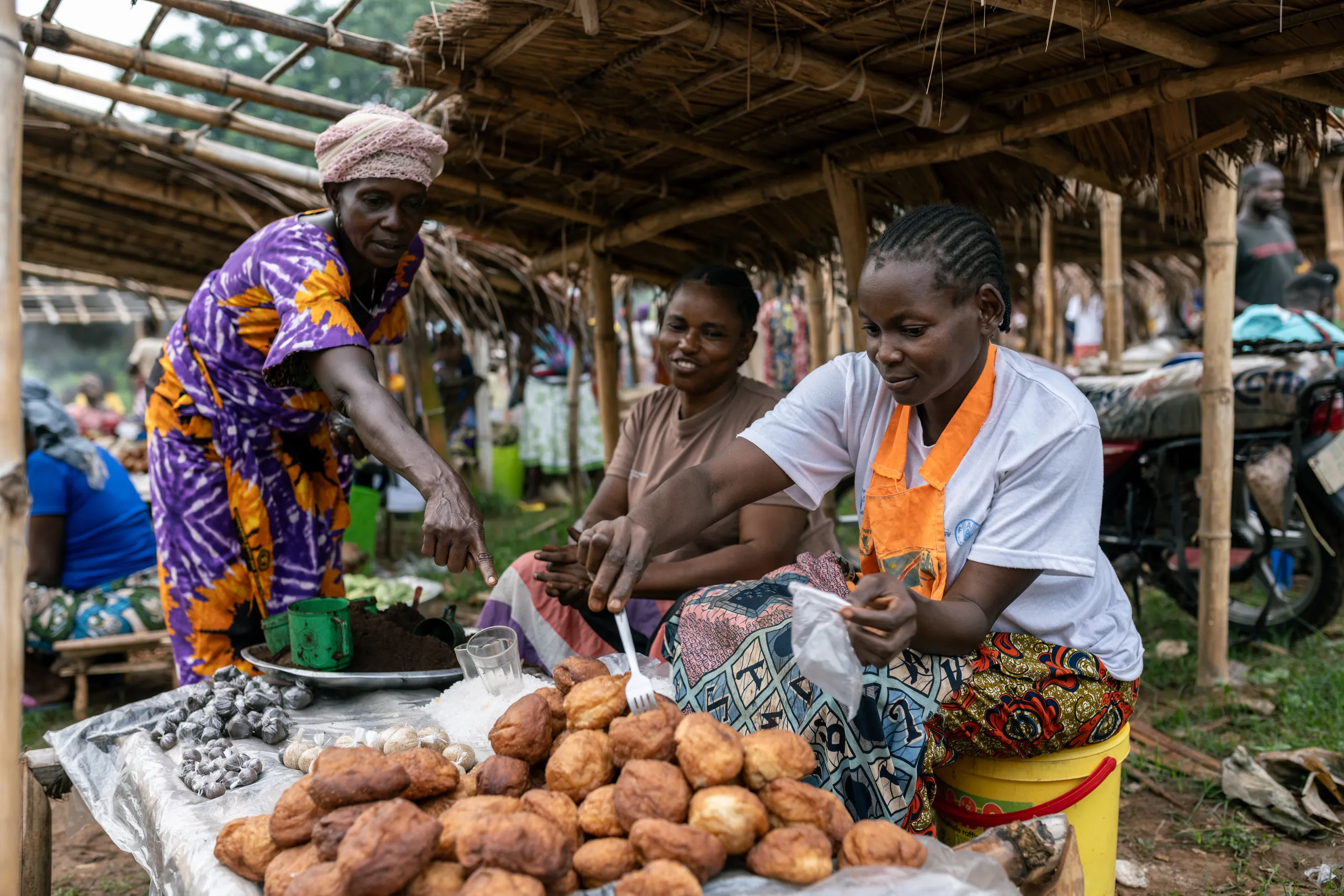
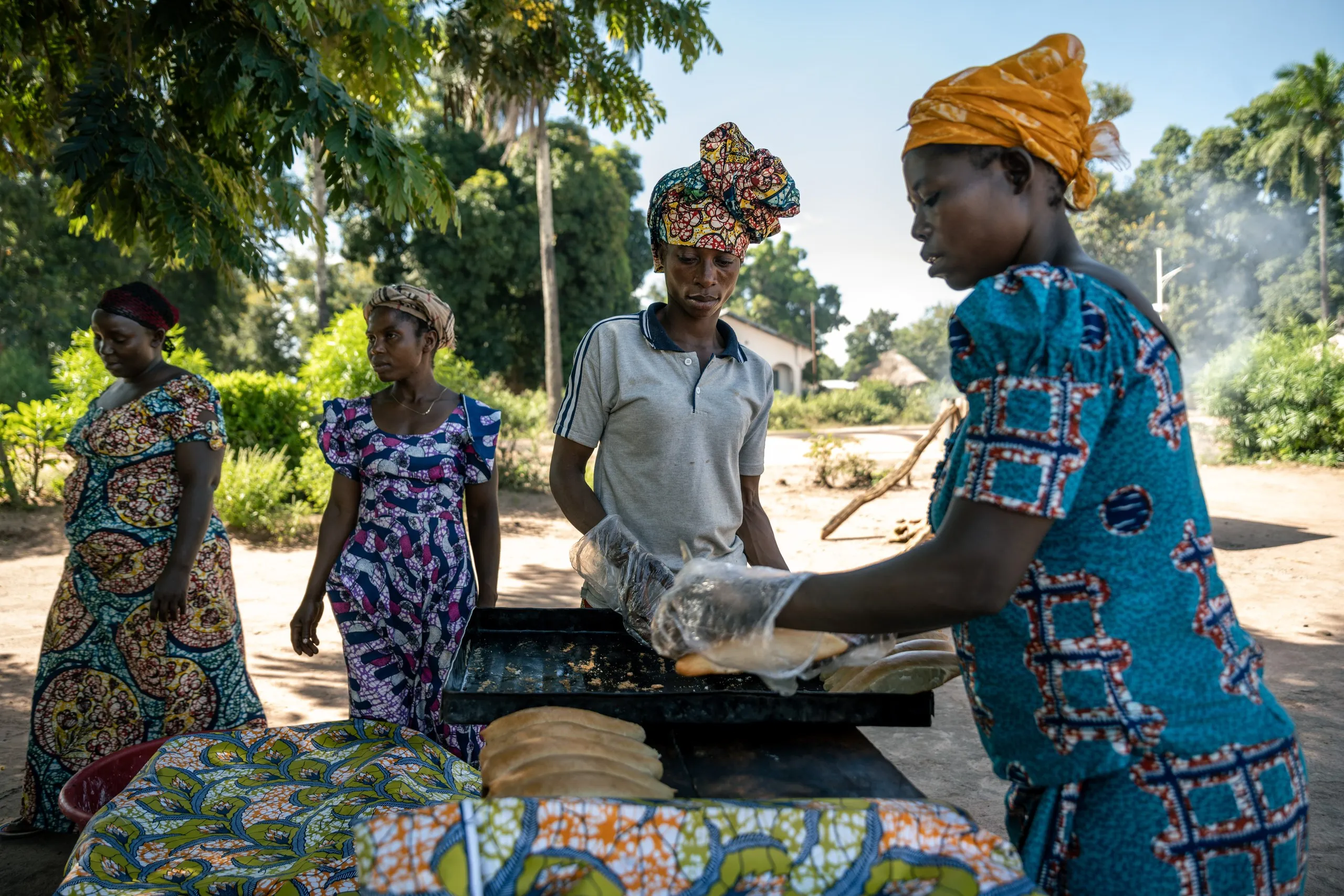

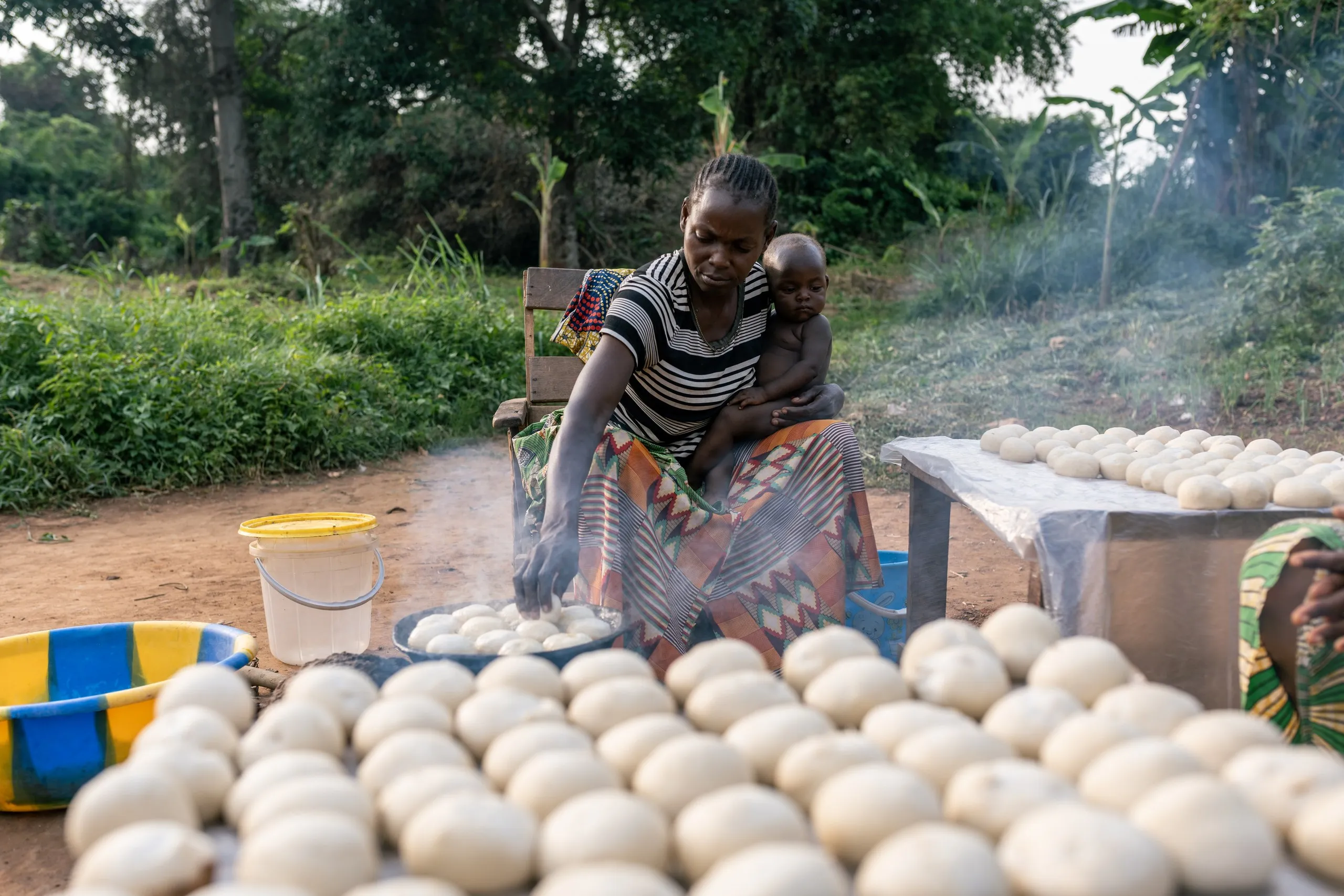
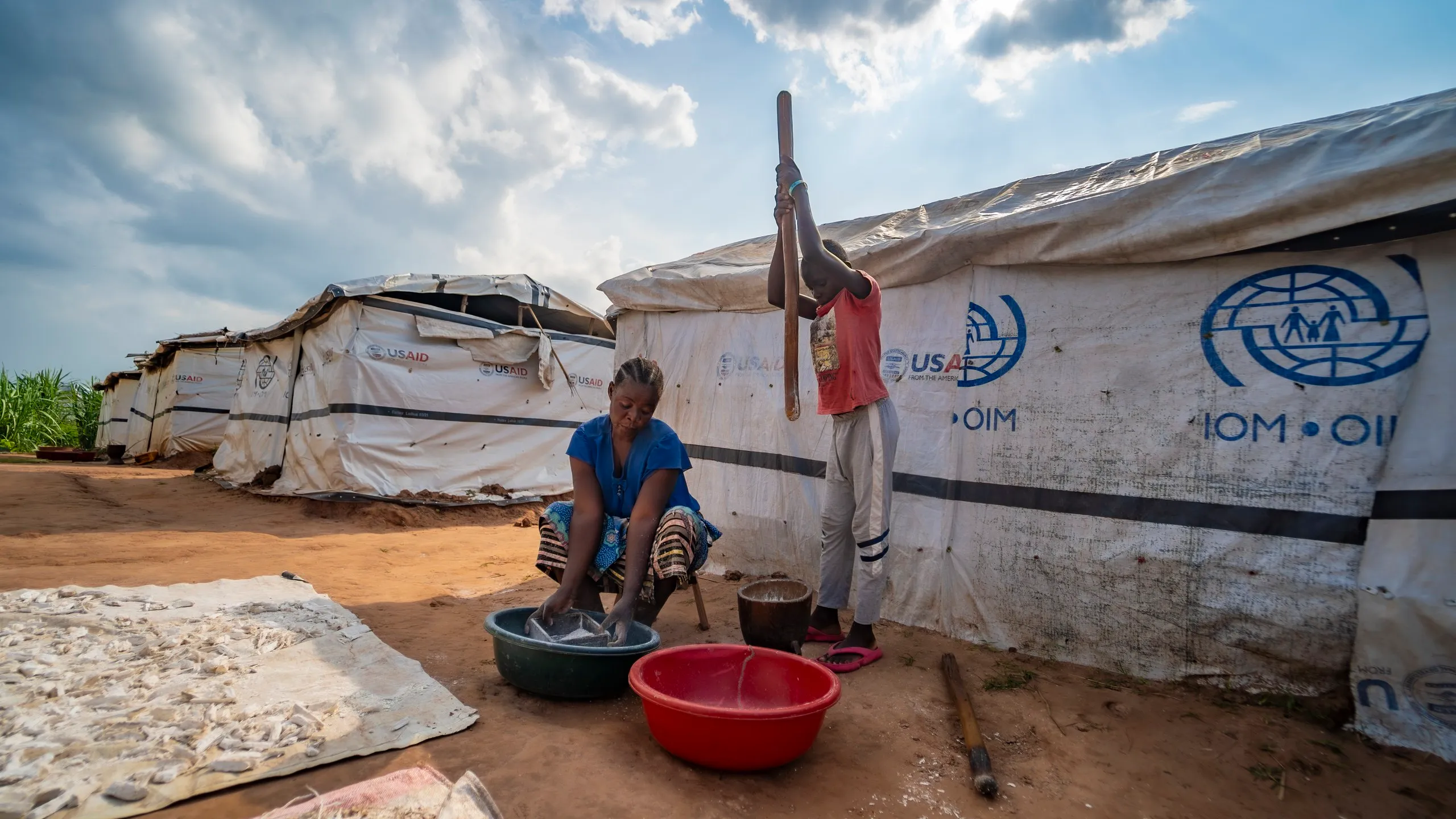
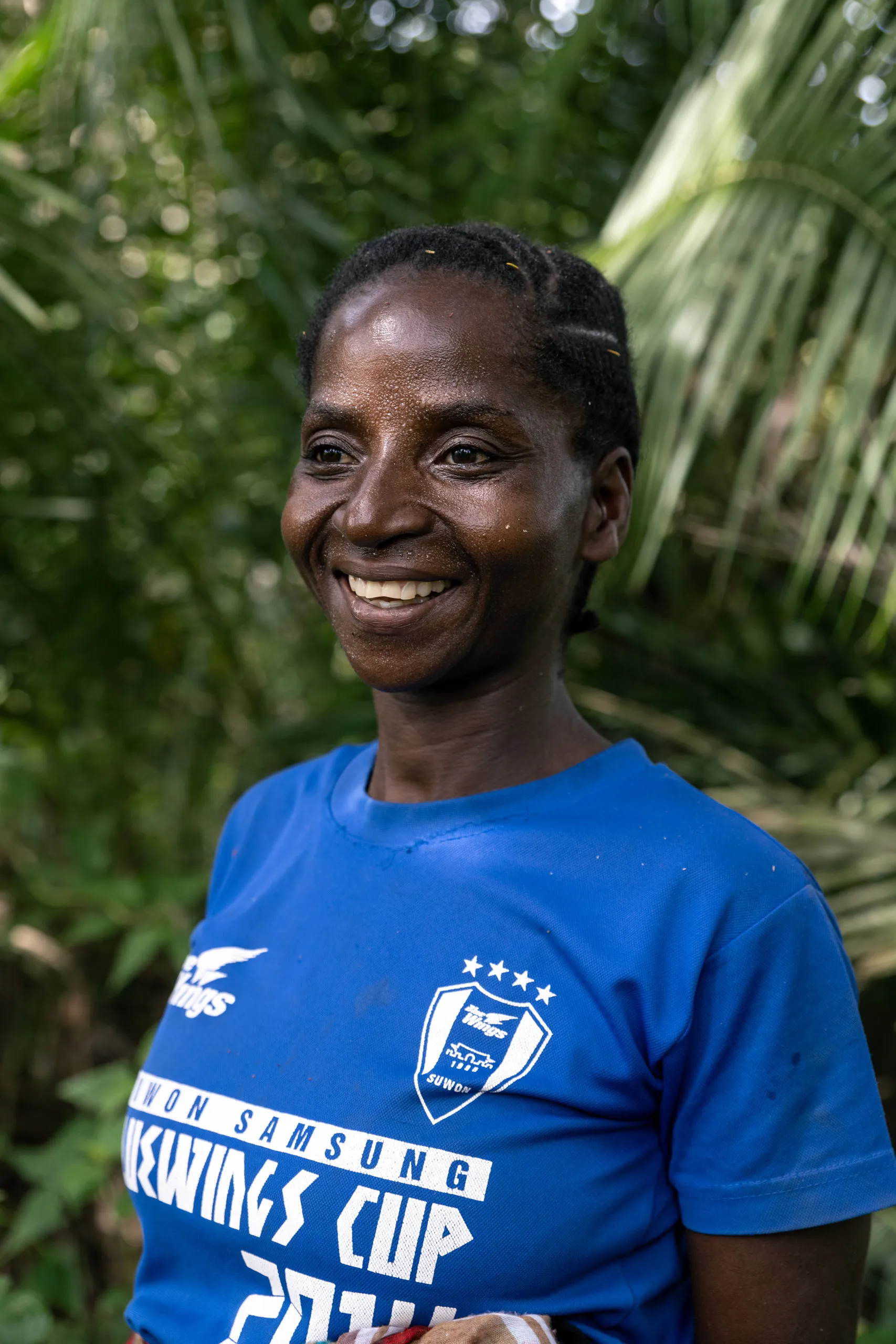
“Before, I struggled with my children. We only survived through farming, and it was very difficult. The arrival of the project allowed me to start a business to make ends meet. Today, I live well; my children are well-dressed, go to school, and are in good health.”
Rachel Vikou, Ubangi
Veronique, Ana Linda, and Sidonia have taken part in local literacy programmes. Through these programmes, they’ve gained skills that help them take on new responsibilities and leadership roles in their communities. These are their stories.
Women reclaiming leadership
47, Kananga
Veronique Ngolela
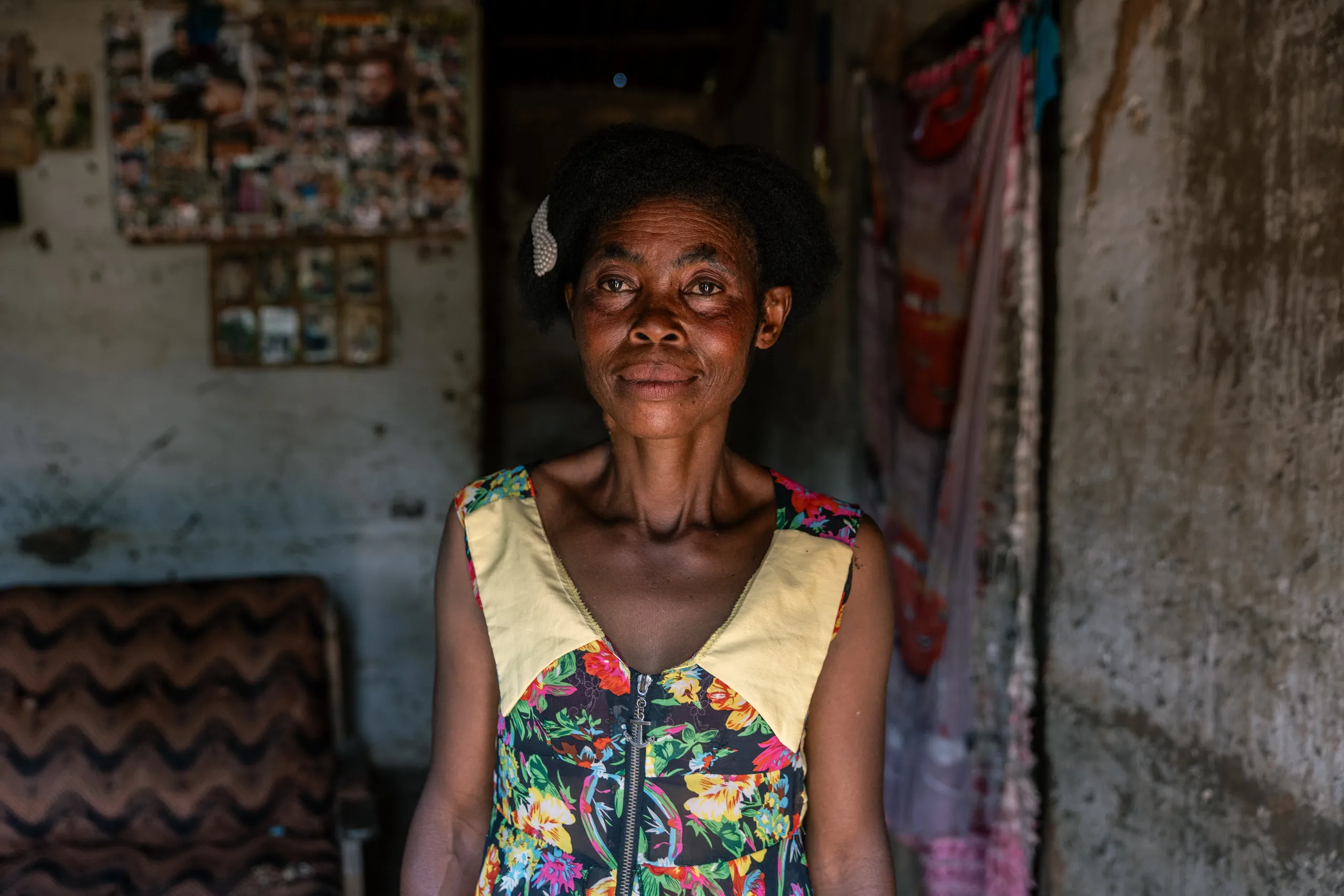
Véronique Ngolela Koleshayi is a mother of five living in the village of Nkonko.
Véronique spent her days cultivating maize, beans, cassava, and sesame seeds in the fields, while also relying on her skills as a seamstress to supplement her income. However, without proper training or resources, her efforts yielded minimal returns, and the burden of raising five children alone became increasingly difficult.
Through cash assistance and literacy training, Véronique gained the tools to improve her sewing business and agricultural practices. She learned to read and write, empowering her to manage her household and business with confidence. With the cash she received, Véronique invested in sewing materials, including fabric and accessories, enabling her to produce more garments and earn a steady income.
The additional income not only feeds her family but also covers school fees, uniforms, and essential supplies for her children.
Despite the challenges of being a single mother, Véronique has become a role model in her community, demonstrating the power of education, self-reliance, and perseverance.
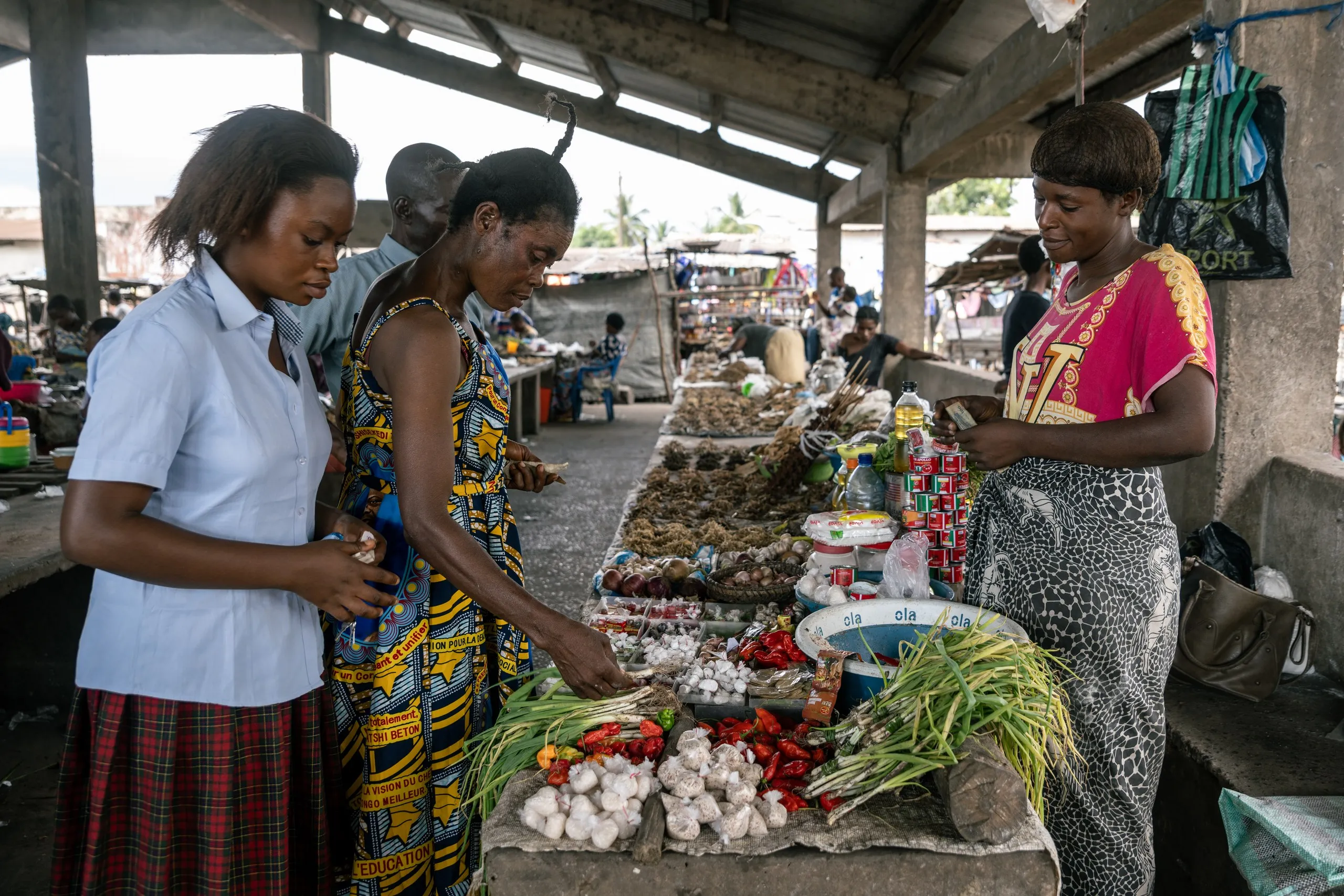
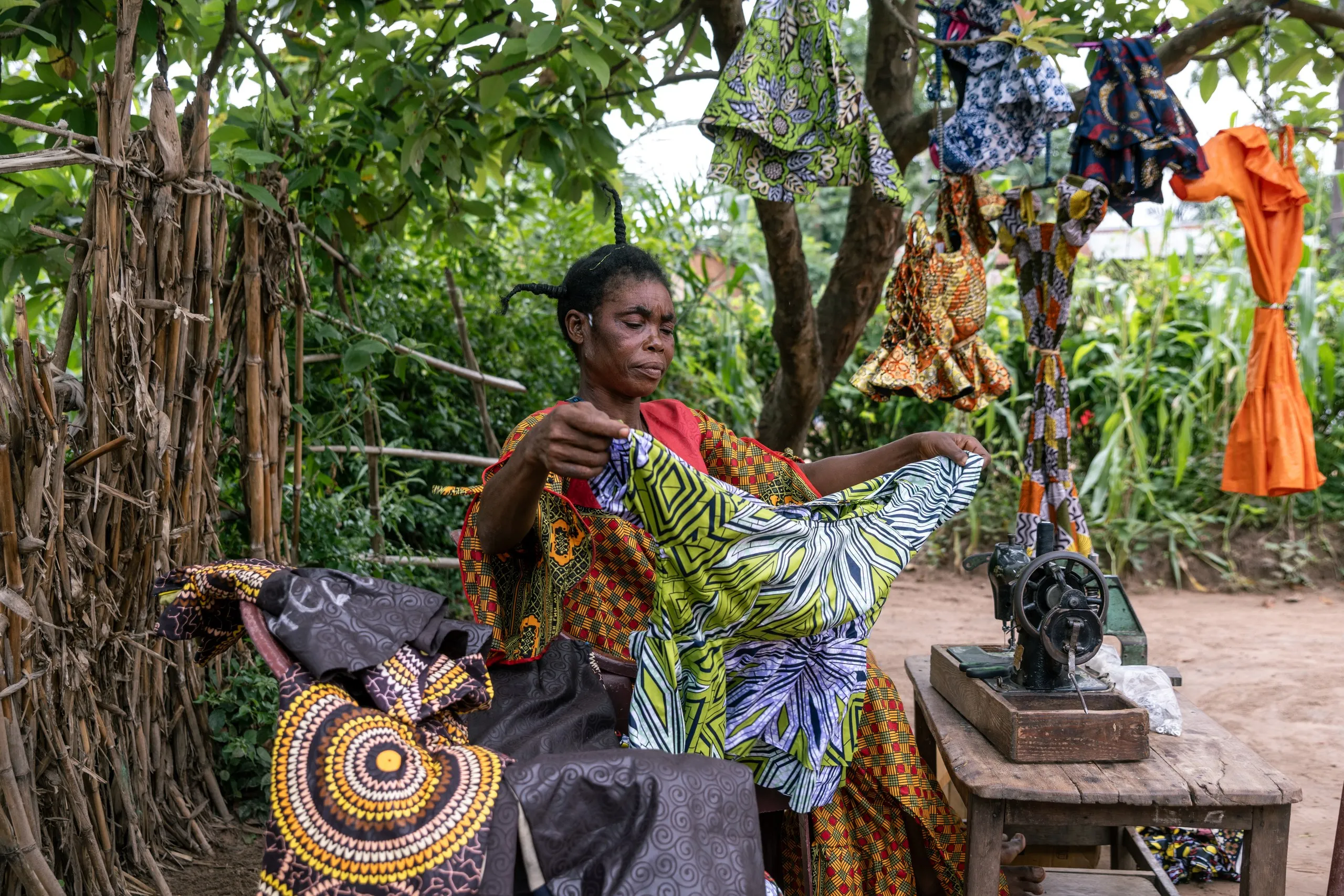
“Now I can pay for my children's school fees, buy food, and invest in my sewing business. I used to struggle to make ends meet, but now I feel hopeful for the future.”
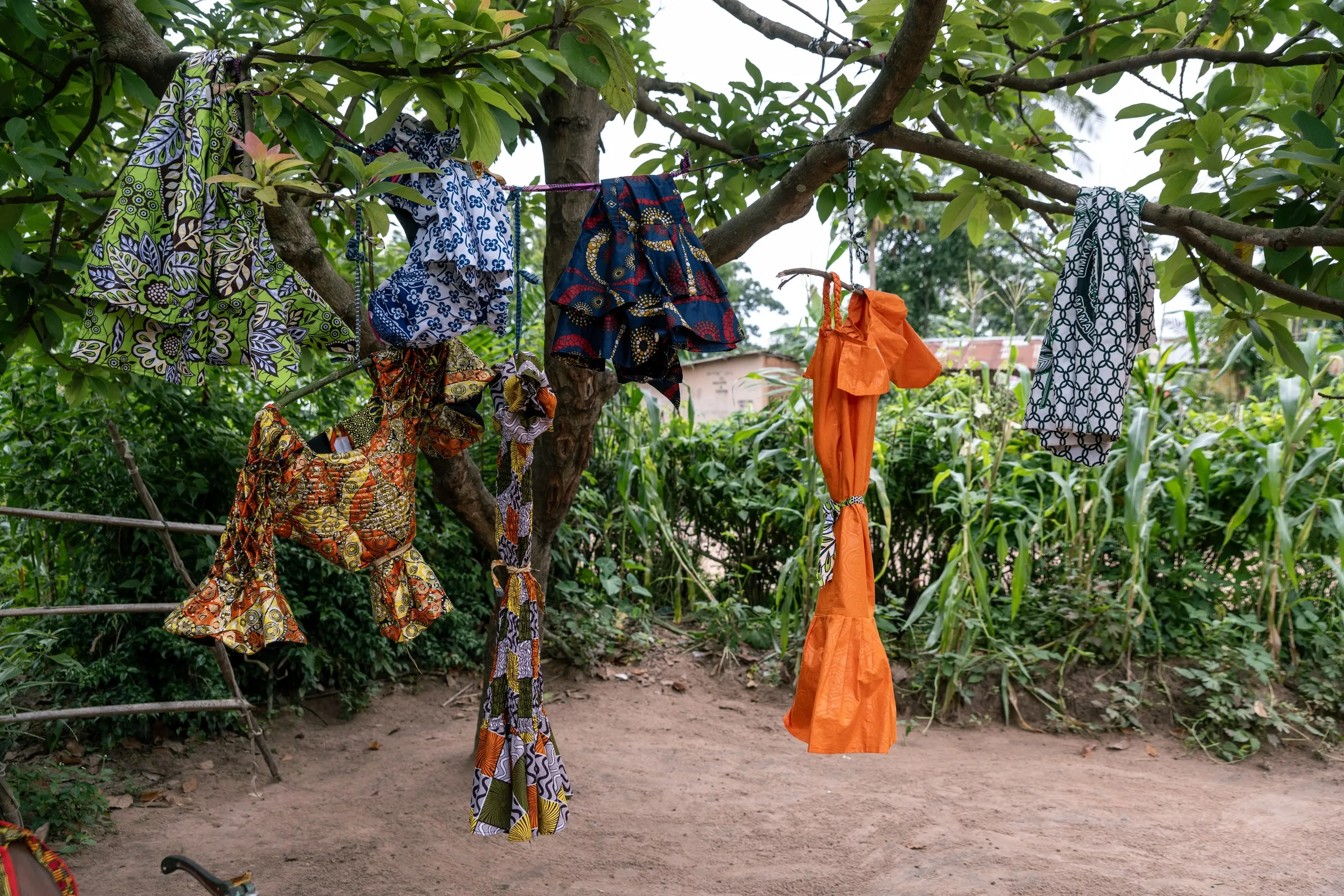
“Now I can pay for my children's school fees, buy food, and invest in my sewing business. I used to struggle to make ends meet, but now I feel hopeful for the future.”
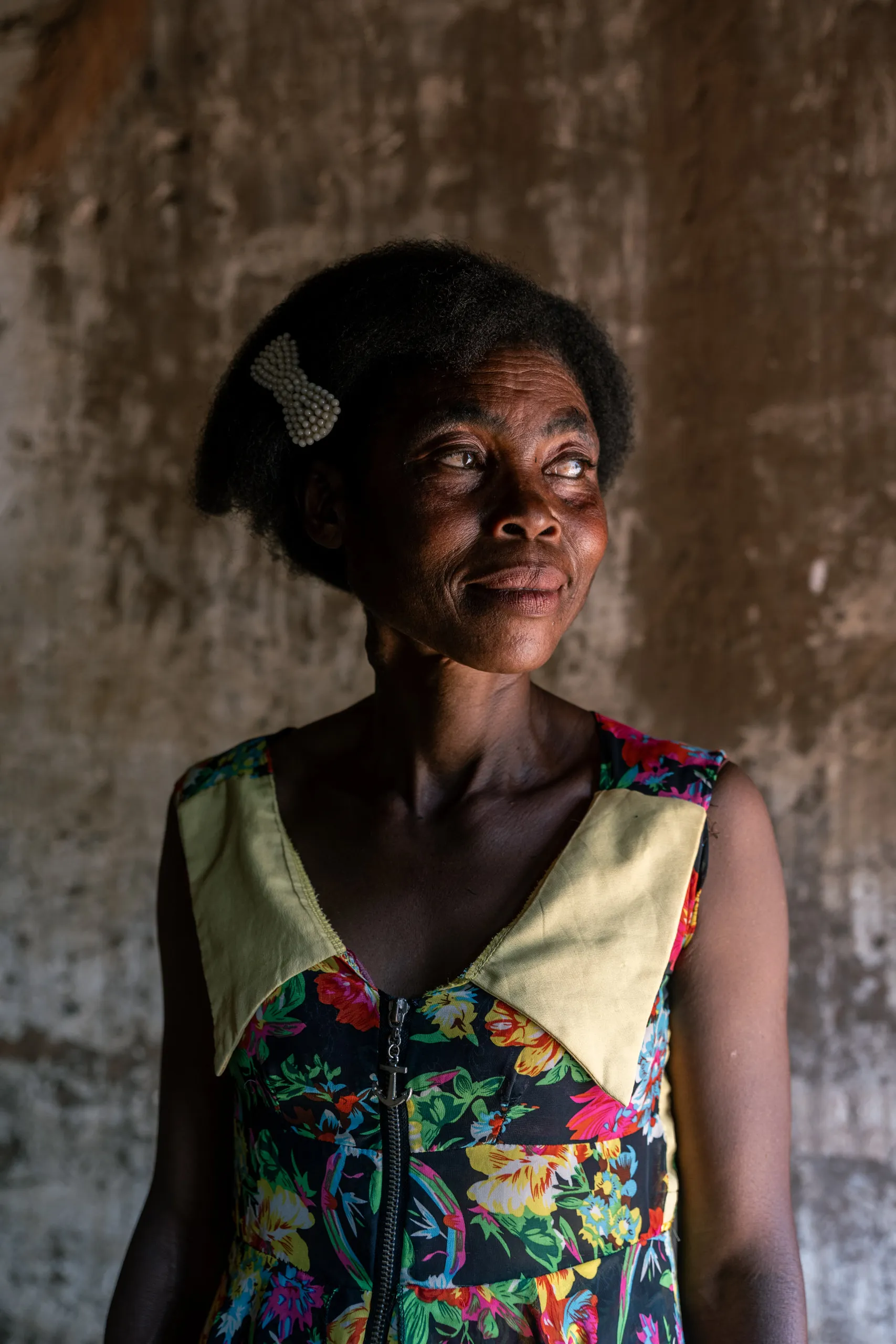
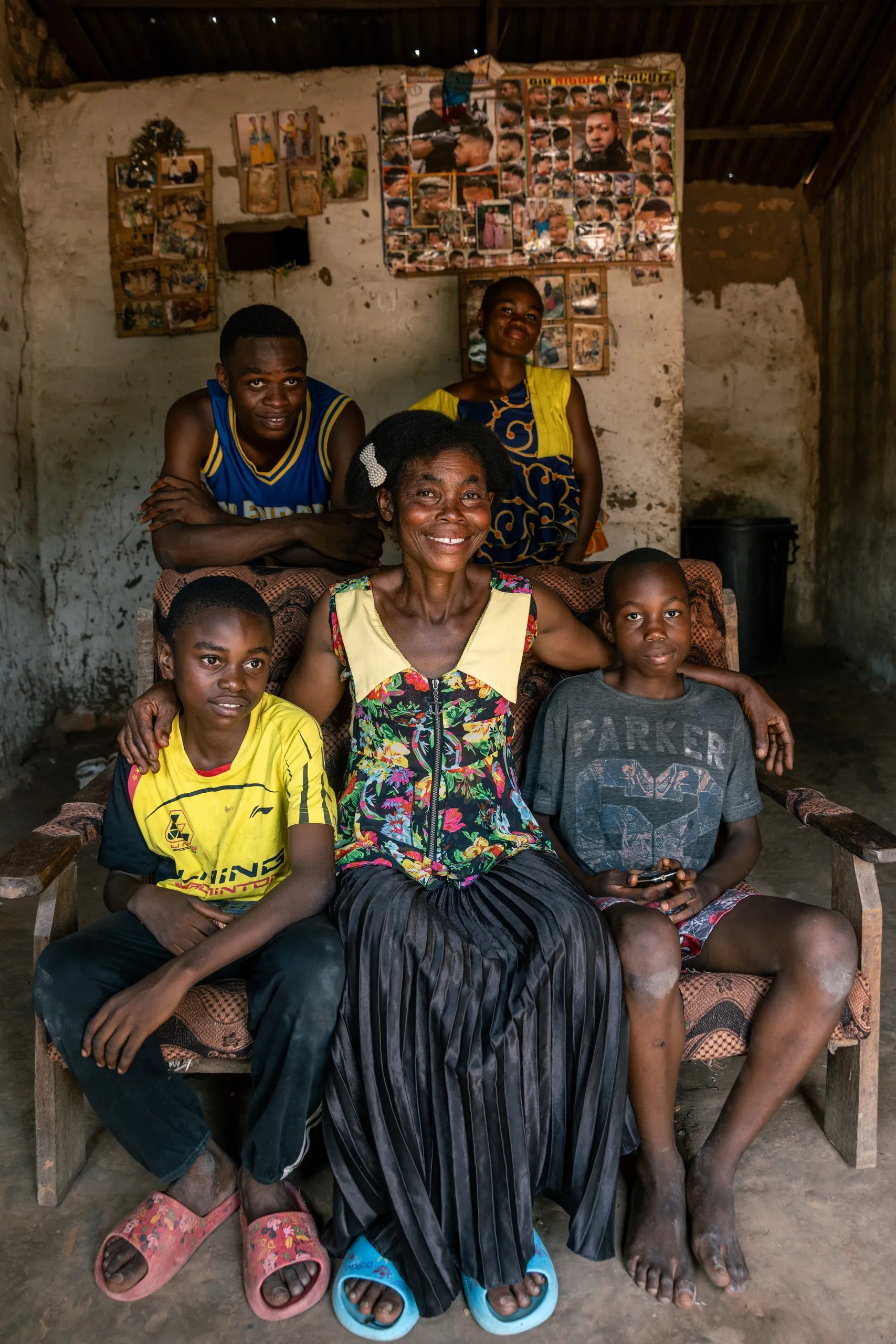
“I used to practice sewing before, but when I joined the WFP literacy programme, I learned entrepreneurship and developed my skills further.”
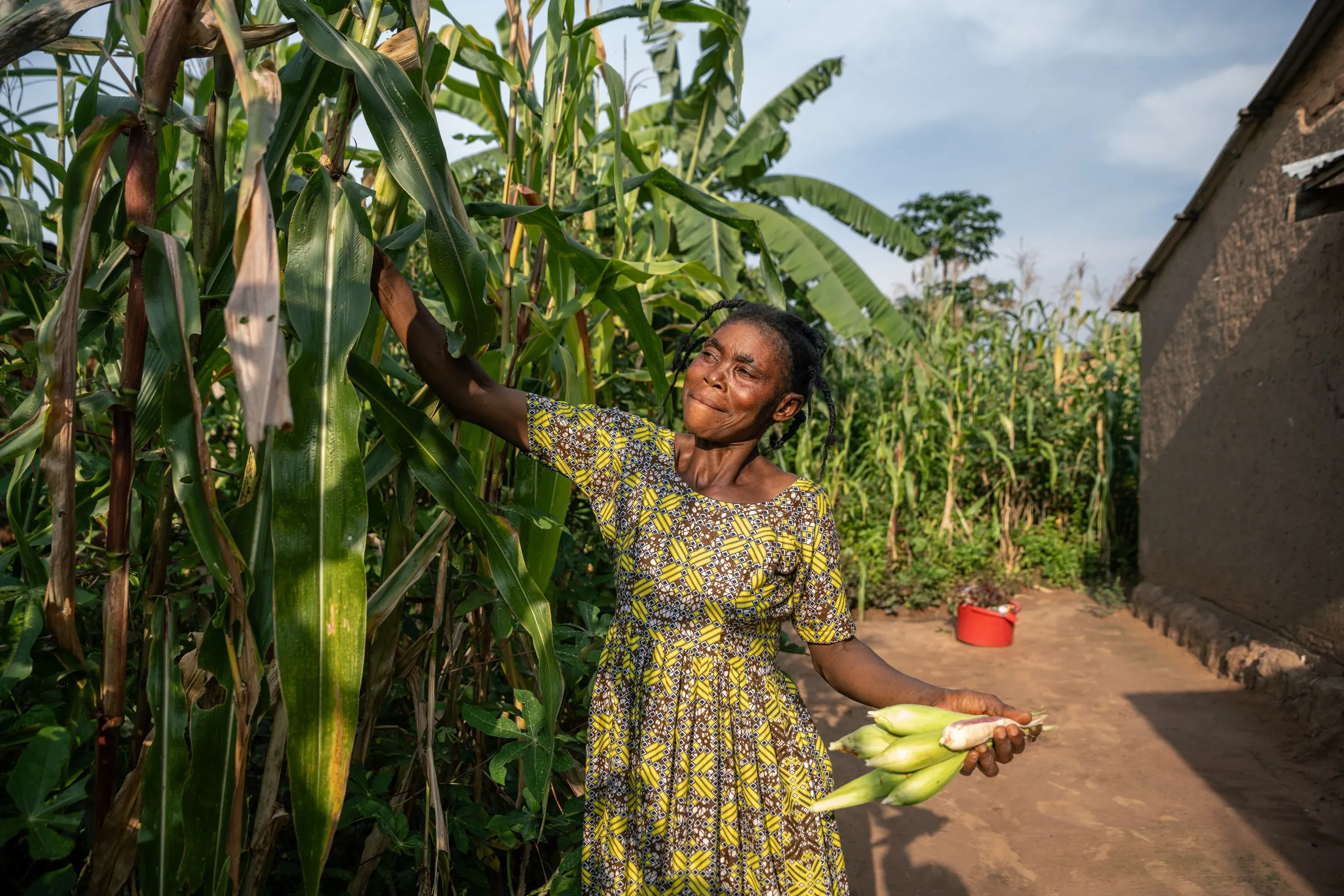
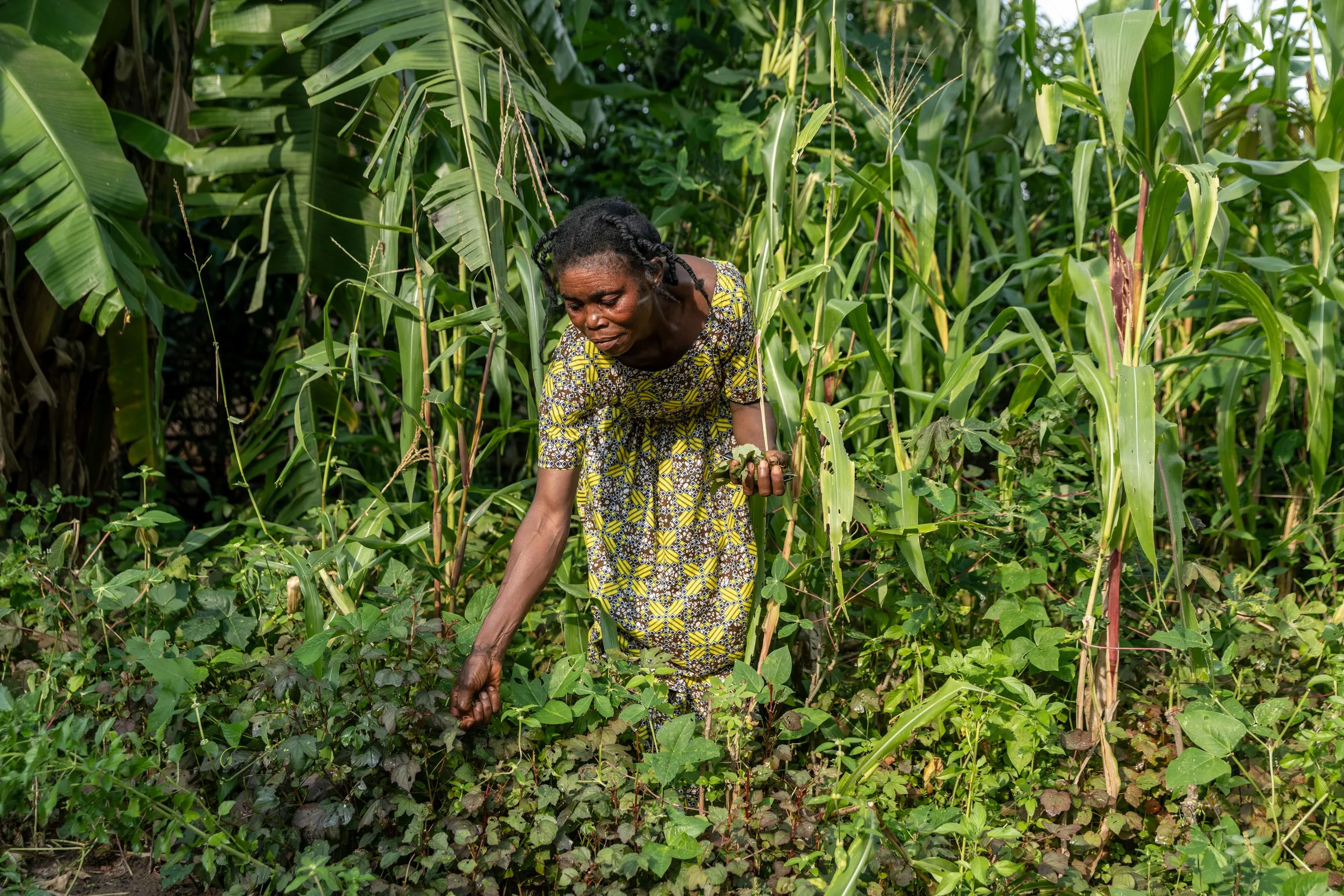
“My dream is to see my children succeed. One wants to become a general, another a lawyer, one a seamstress, and another a mechanic.”
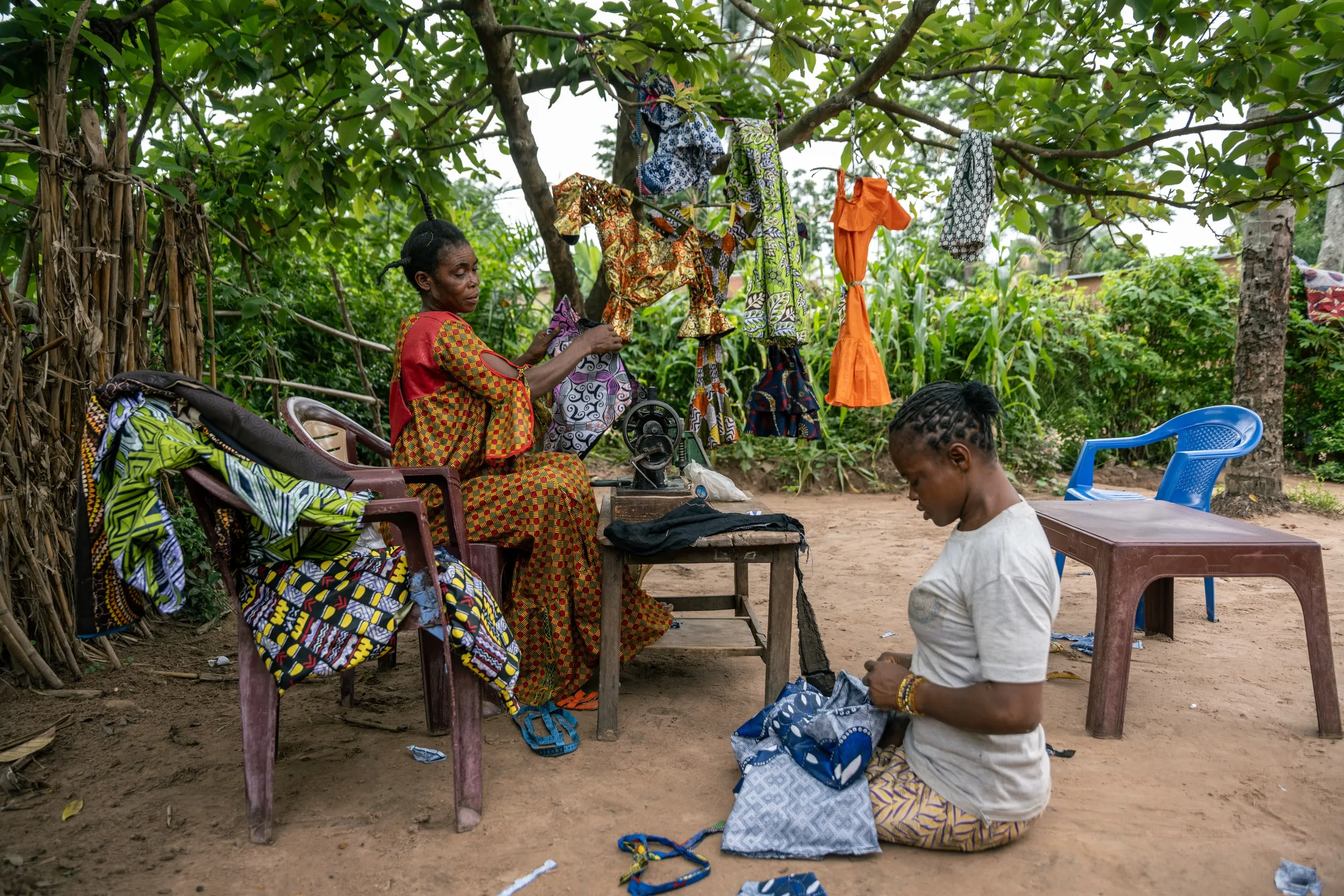
Women reclaiming leadership
Mbuji-Mayi
Ana Linda and Lukoo Buma
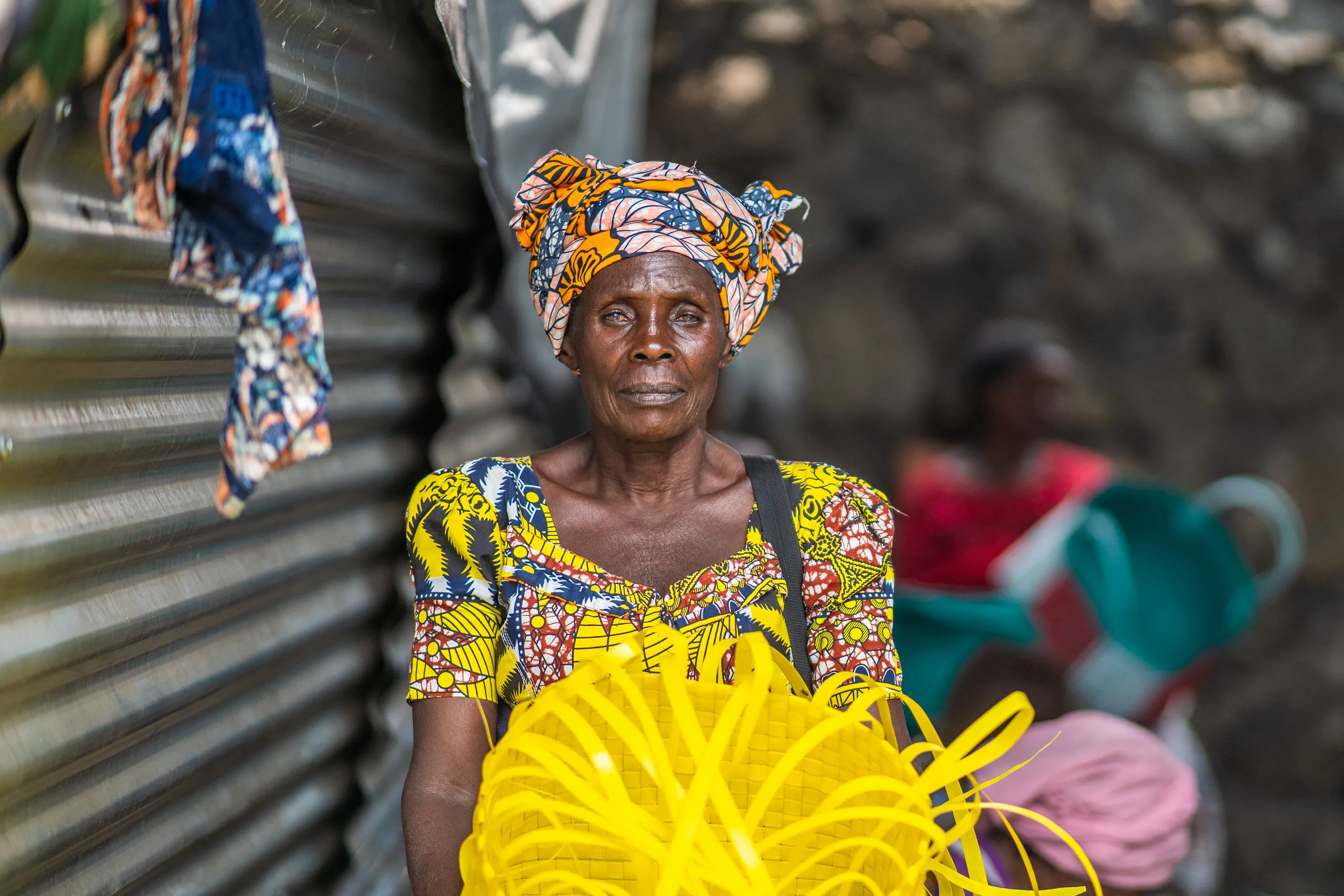
Forced to flee her home in Masisi, North Kivu, due to escalating conflict, Ana Linda found shelter in the Lwashi camp. Life as a displaced person is not easy—each day brings new challenges, from finding food to maintaining hope. Amid the uncertainty, she found a lifeline through the Tuungana Cooperative, supported by WFP with food and skills training.
Ana Linda learned to weave baskets—a skill that now helps her earn an income and care for her loved ones. She dreams of returning home, rebuilding her life, and starting a business in her community.
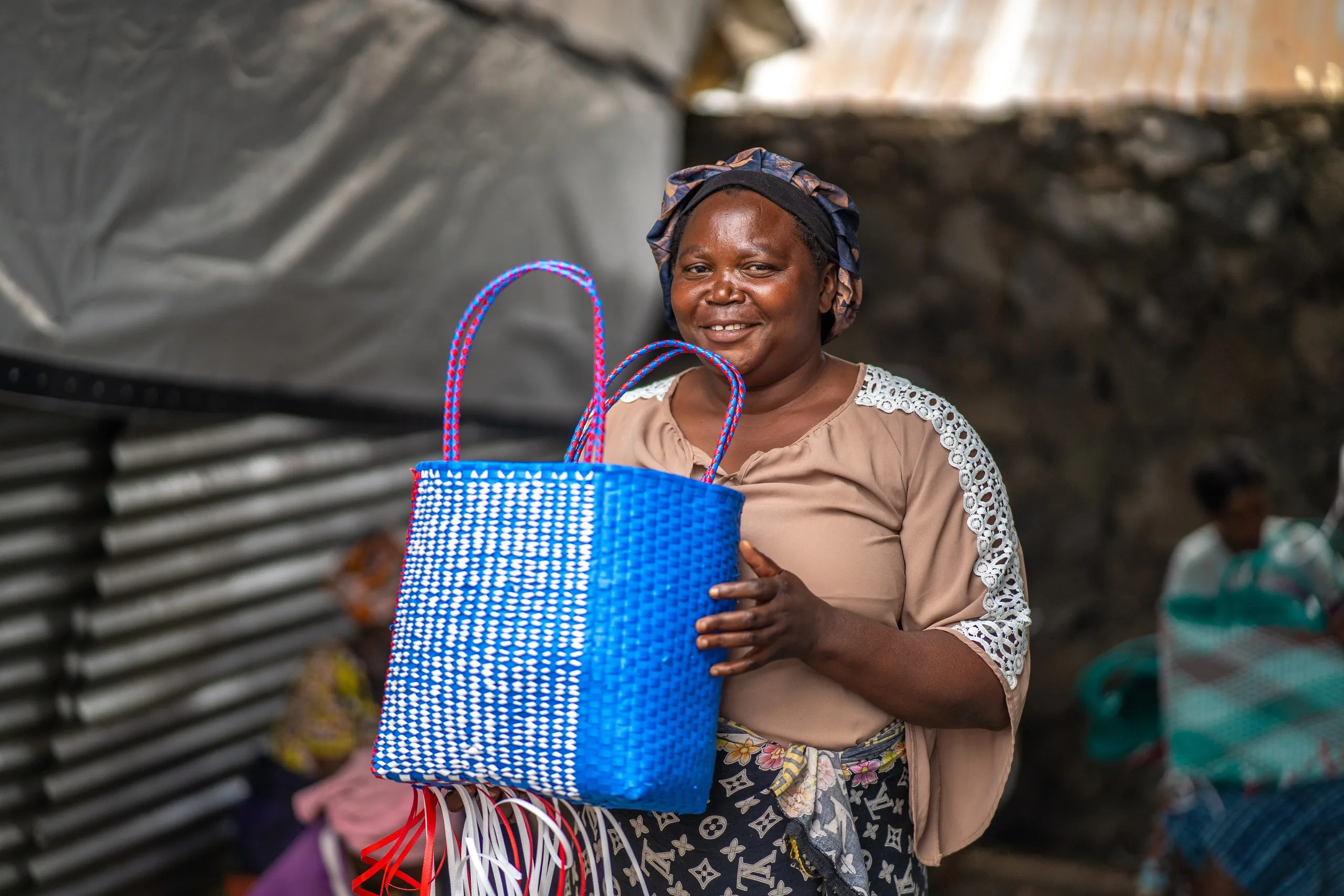
Lukoo Buma, also part of the cooperative, has faced similar challenges. Before joining, she didn’t know how she would support her family. Now, she is mastering the intricate craft of basket weaving, transforming raw materials into beautiful, functional goods.
With her new skills, Lukoo hopes to launch a business and empower other women around her. For both women, each basket woven is a step toward recovery, dignity, and the future they're determined to build.
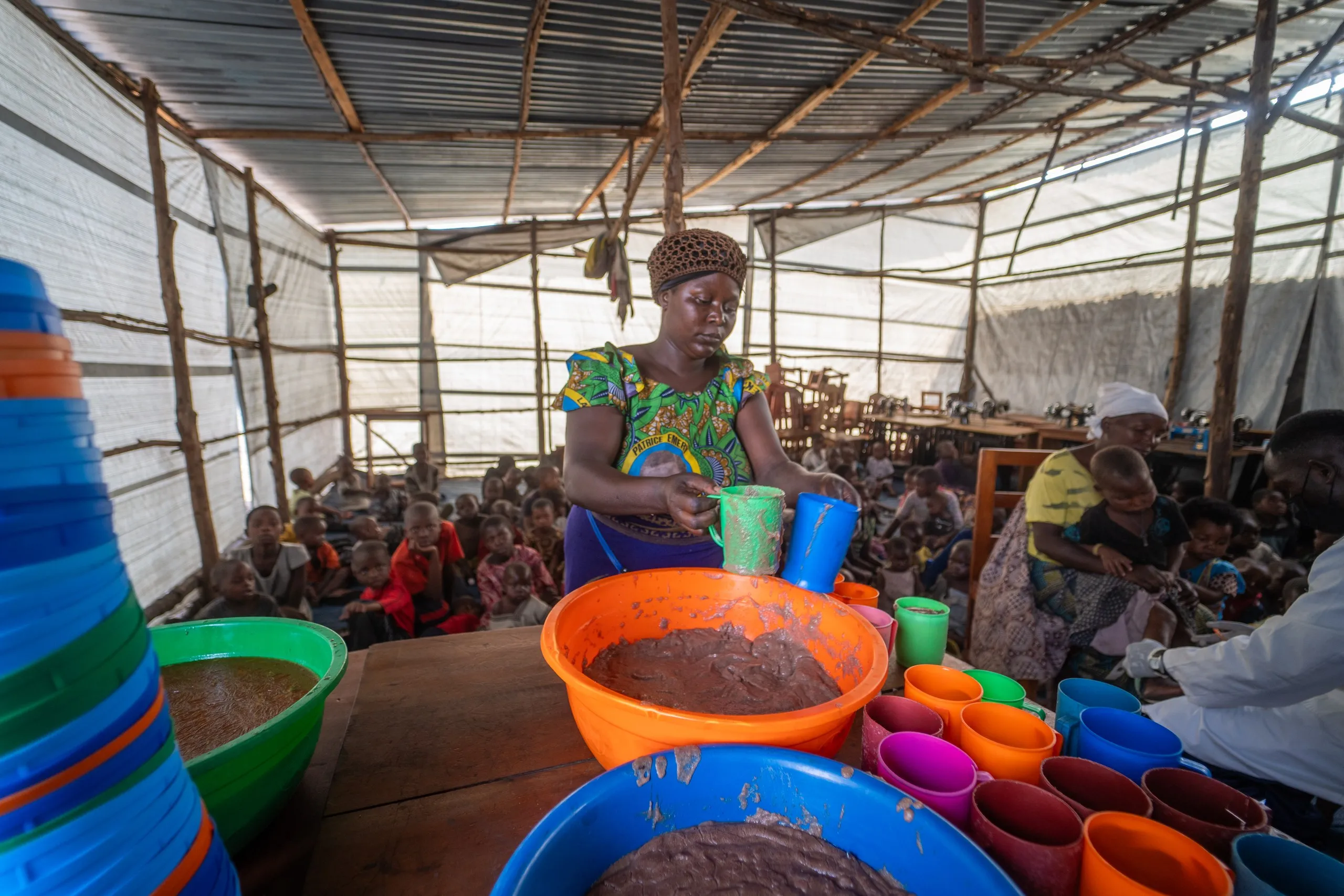
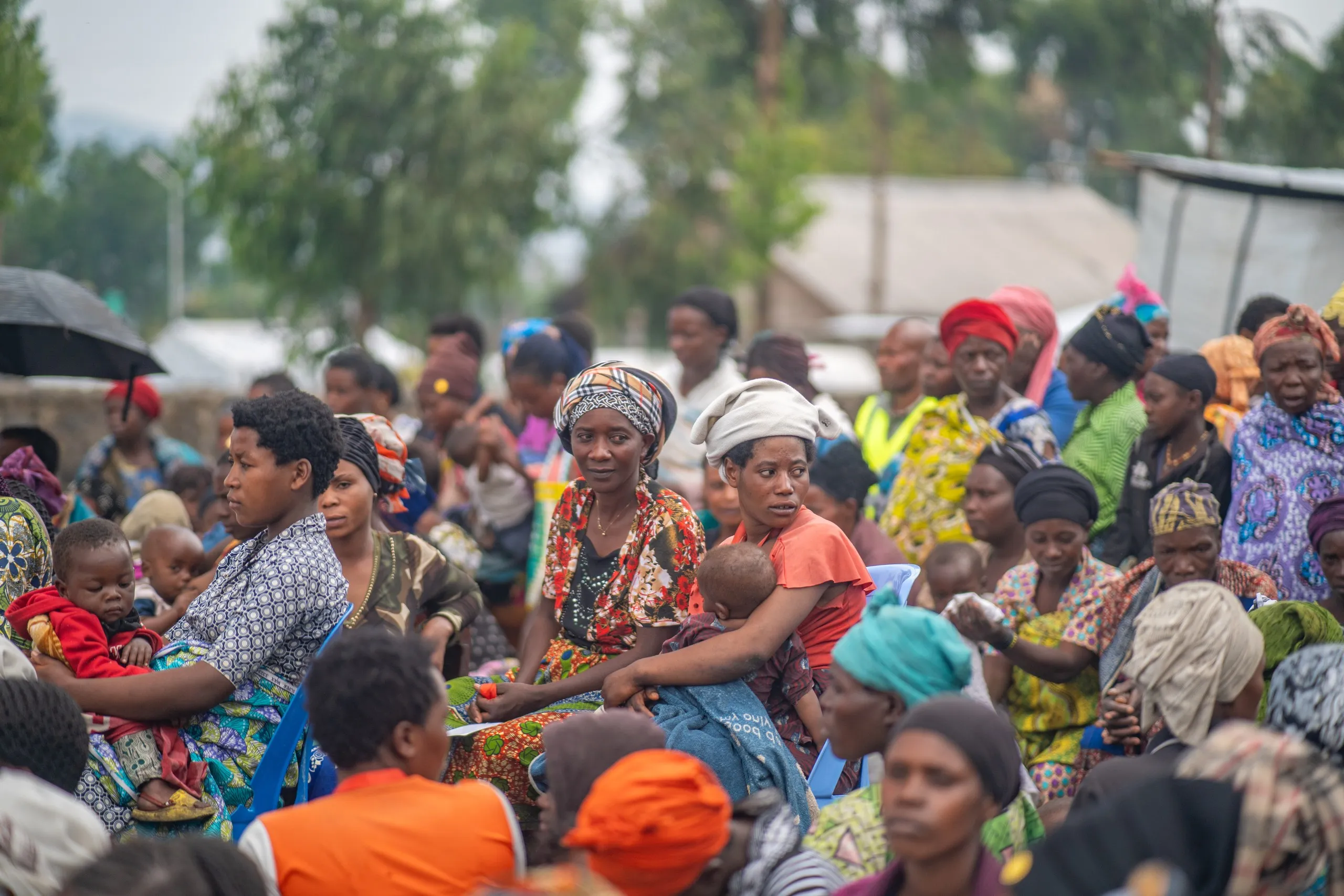
“At first, I didn't believe I could do this. But with time and patience, I learned. Now, weaving gives me the means to support my family and hold onto a sense of dignity.”
Ana Linda.
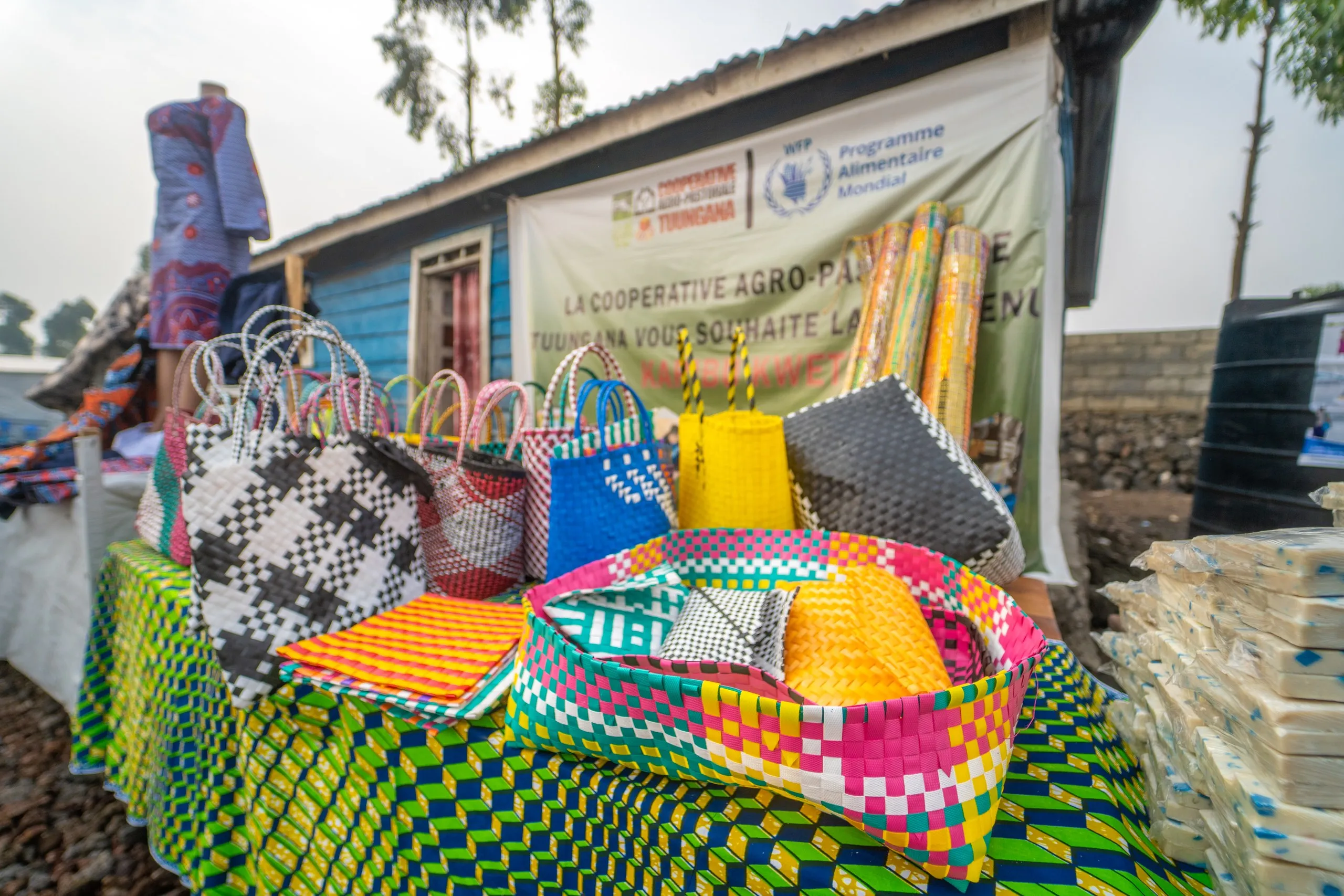
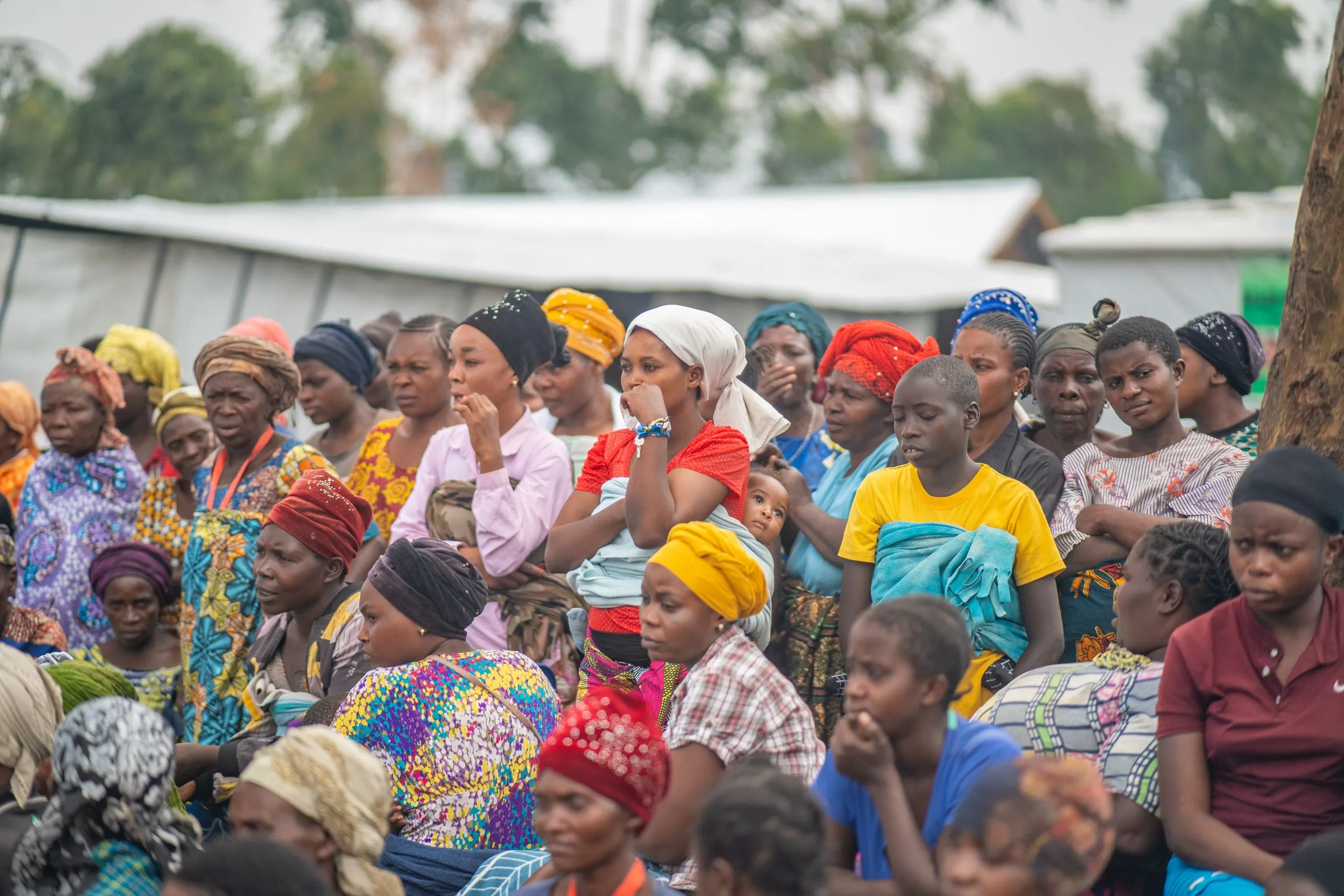
“At first, I didn't believe I could do this. But with time and patience, I learned. Now, weaving gives me the means to support my family and hold onto a sense of dignity.”
Ana Linda.
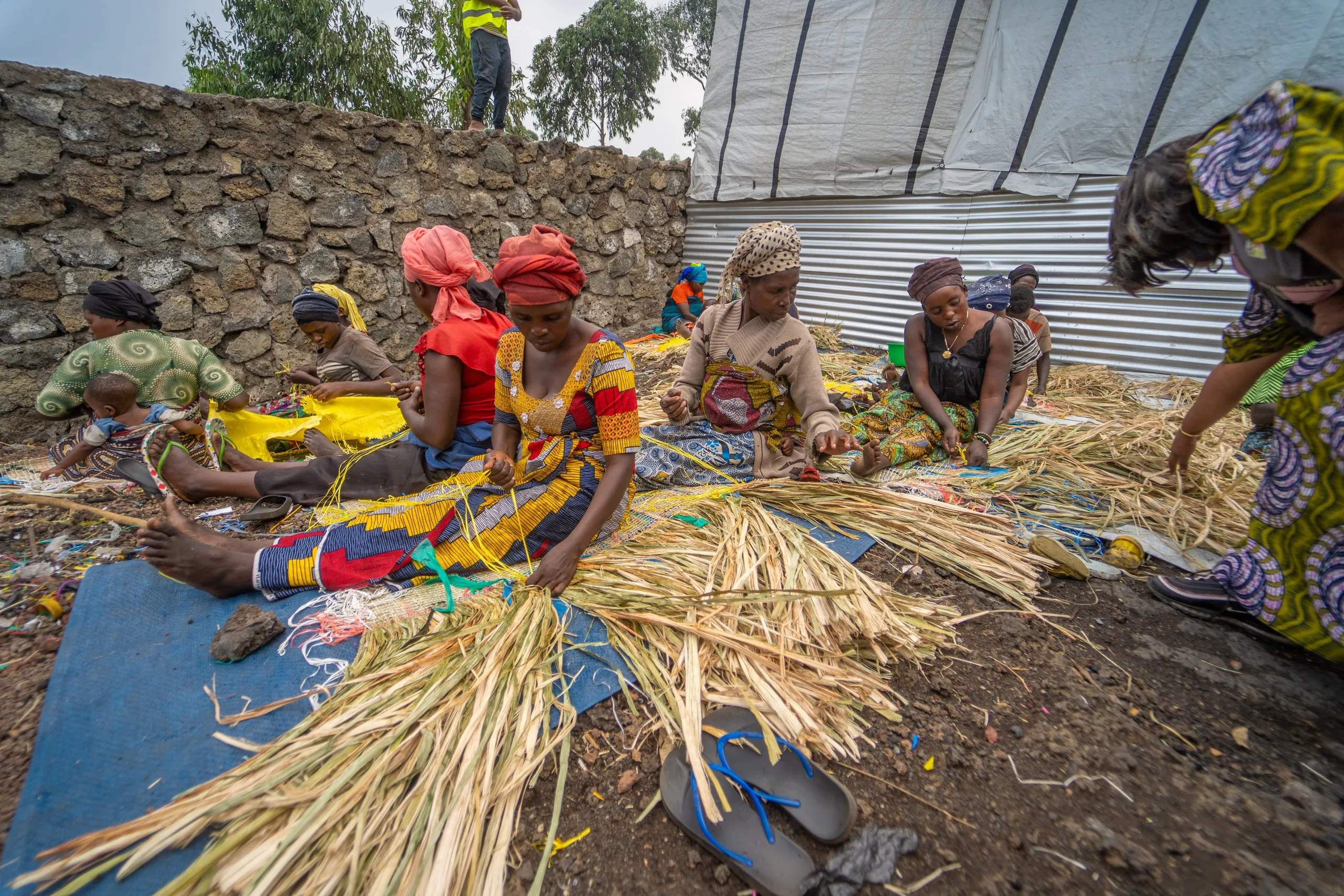
“This is just the beginning, I want to build something that lasts, something that helps not only my family but other women like me.”
Lukoo Buma.
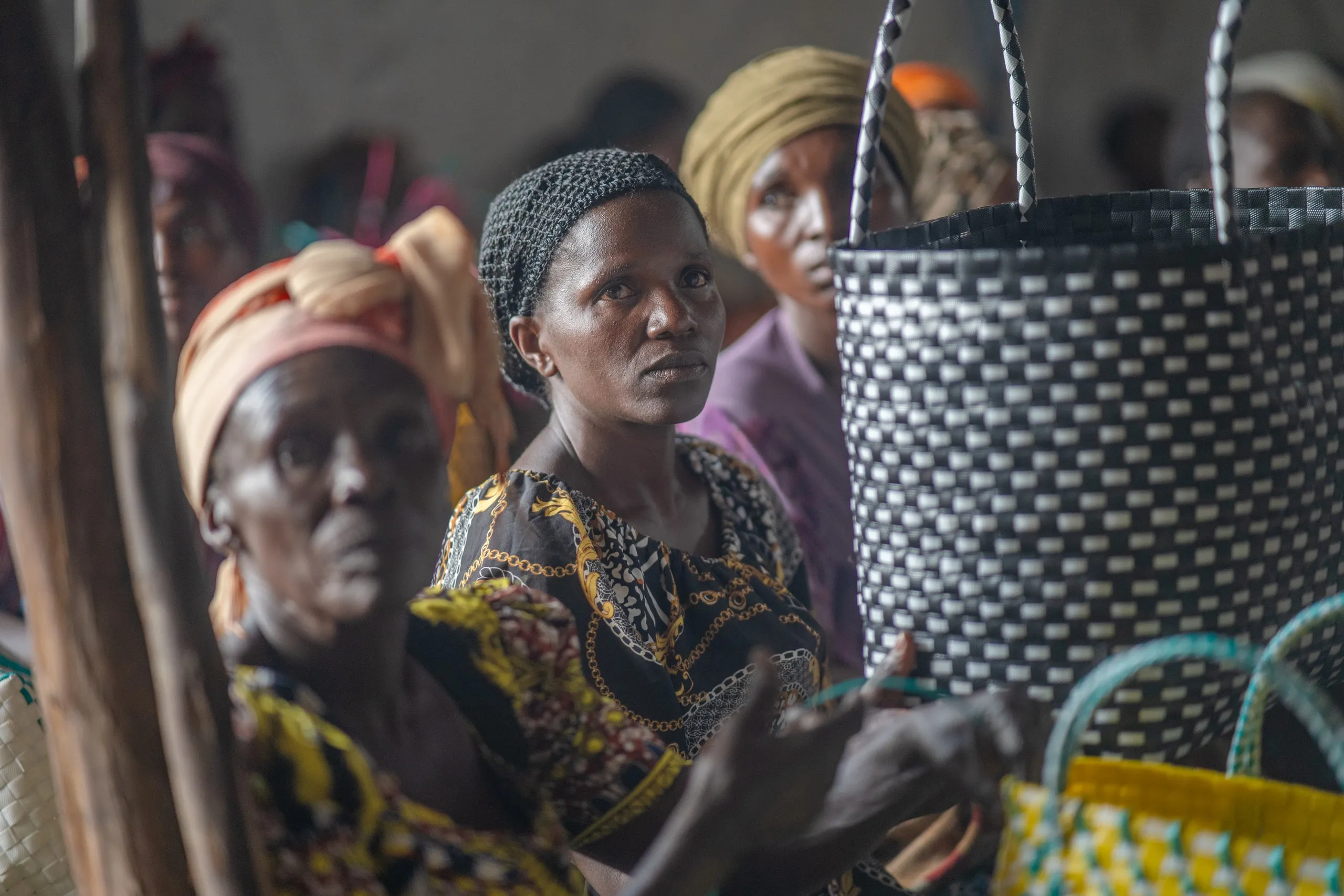
“All our activities are aimed at empowering these women… so they can become independent and take charge of their everyday lives.”
Zaina, president of the Tuungana cooperative.
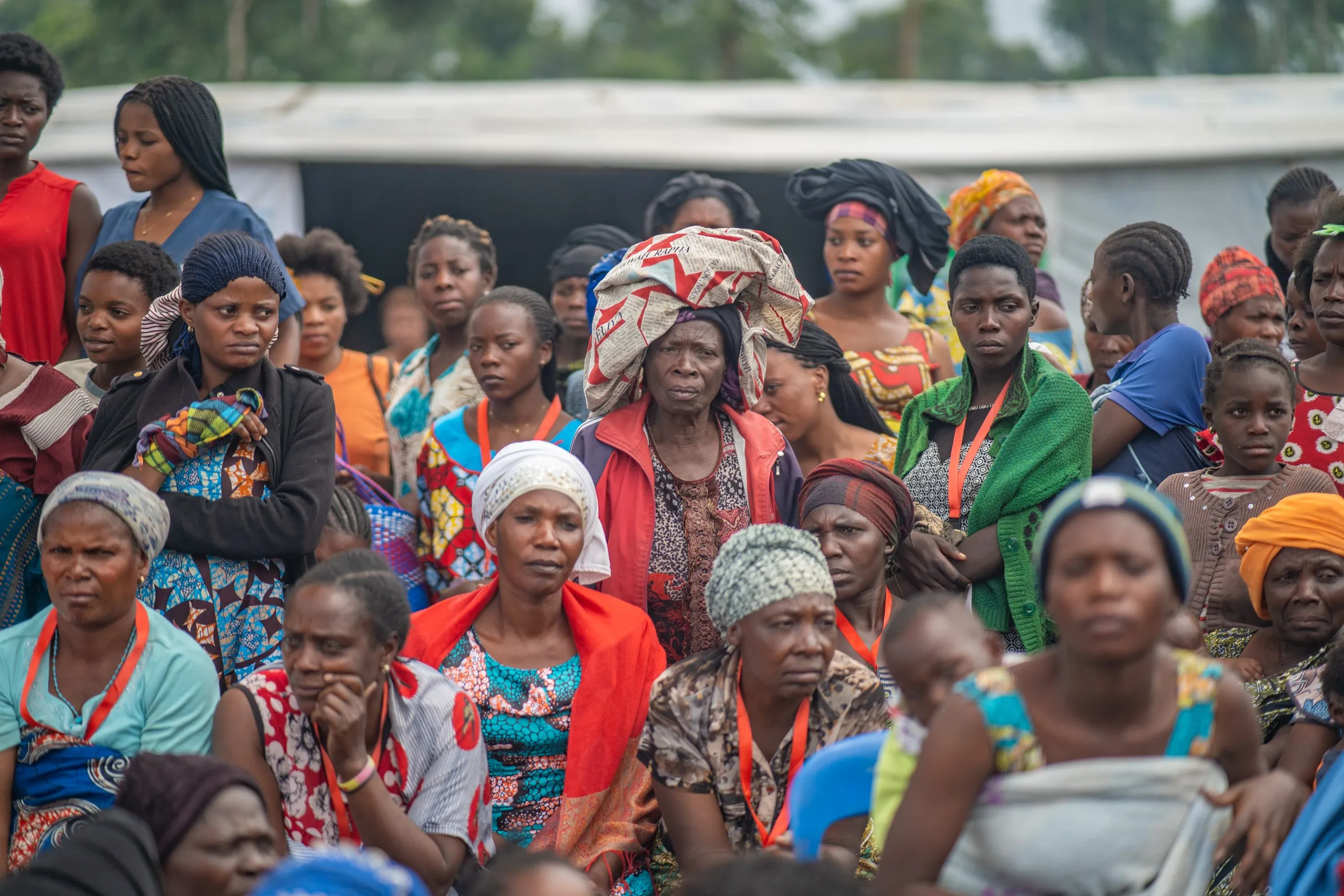
Women reclaiming leadership
39, Tanganyika
Sidonia Nkungwa
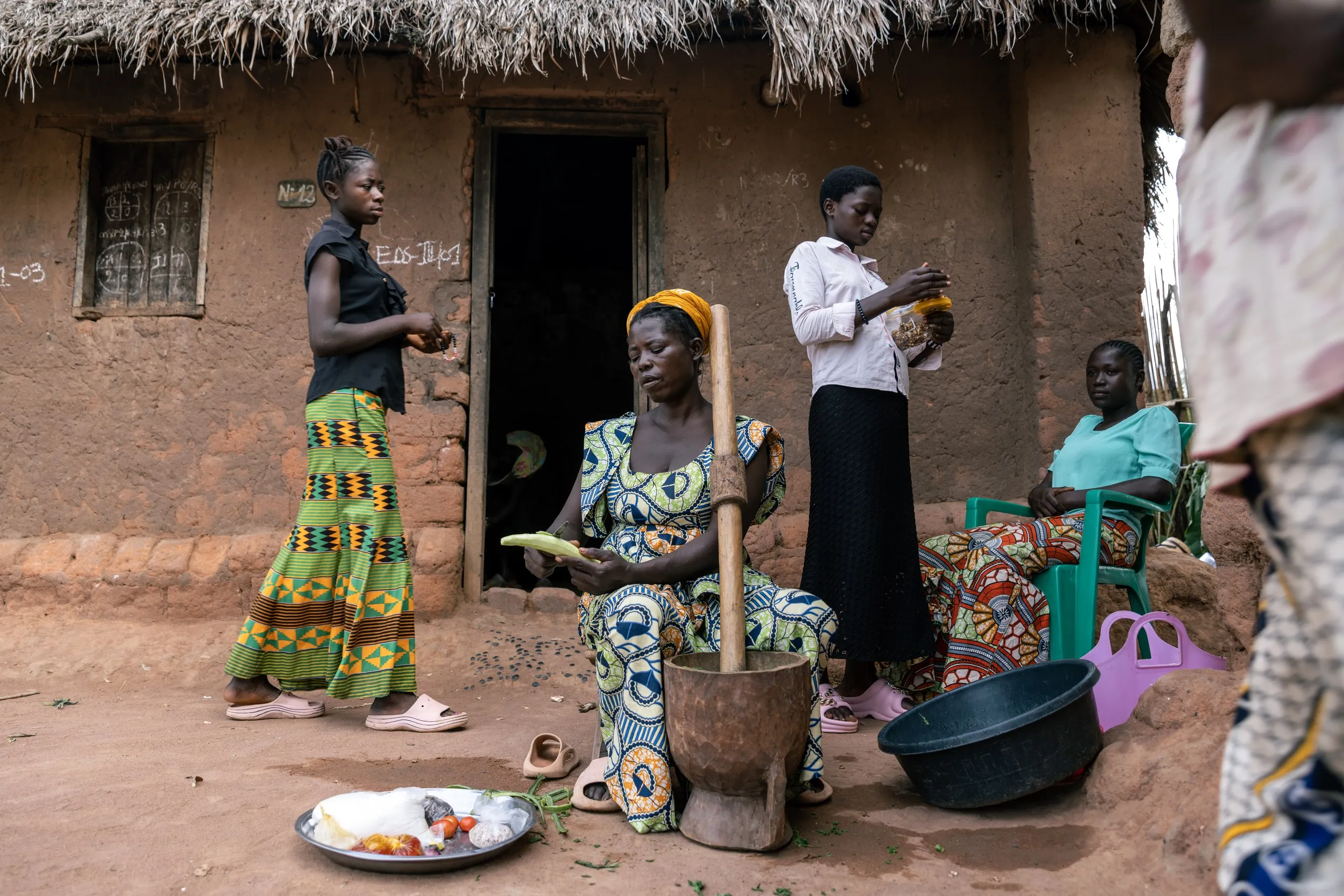
Sidonia Nkungwa Lupia, a member of the Twa community, once faced the harsh realities of displacement and poverty. But through the support of WFP and FAO initiatives, Sidonia's life, and that of her community, has taken a profound turn.
“Before the programme, we were scattered, divided by mistrust and years of struggle,” Sidonia reflects. “But WFP and FAO came to us in 2017, uniting us into Farmer Organisations. It wasn’t easy at first—working together was a foreign concept to many. Yet, over time, we learned the value of collaboration.”
The community pooled their resources, reinvesting in livestock like pigs and goats, ensuring a sustainable future for everyone involved.
For Sidonia, the changes extended beyond agriculture. She proudly recounts the literacy programme introduced by WFP. “I couldn't read or write before,” she admits. “But now, I manage finances for our savings group. Women like me, once overlooked, now hold key leadership positions in our organisations.”
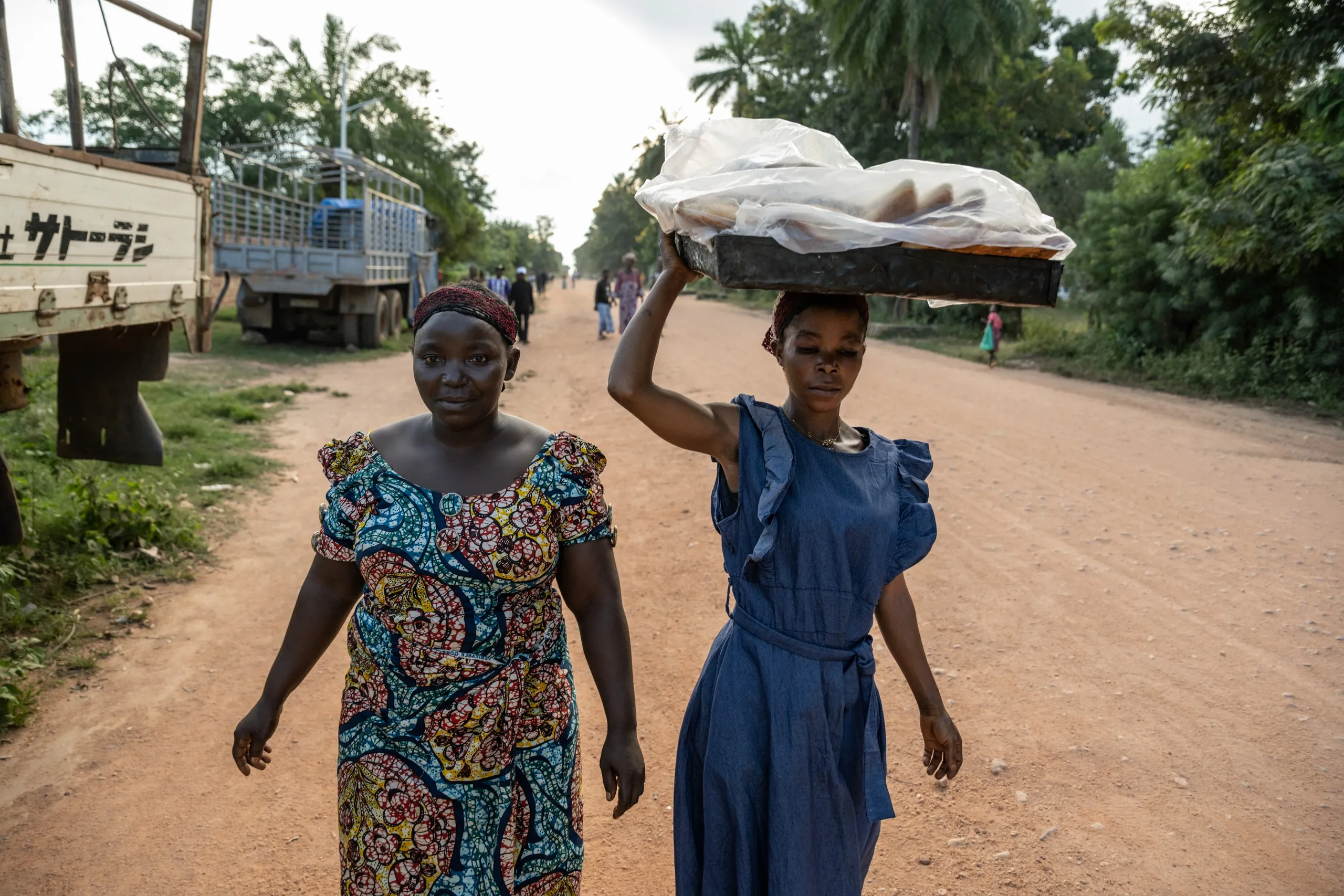
“At first, many didn't see the point of working together and preferred receiving food distributions. However, after harvesting 100 bags of peanuts and 100 bags of maize, we understood the value of collaboration.”
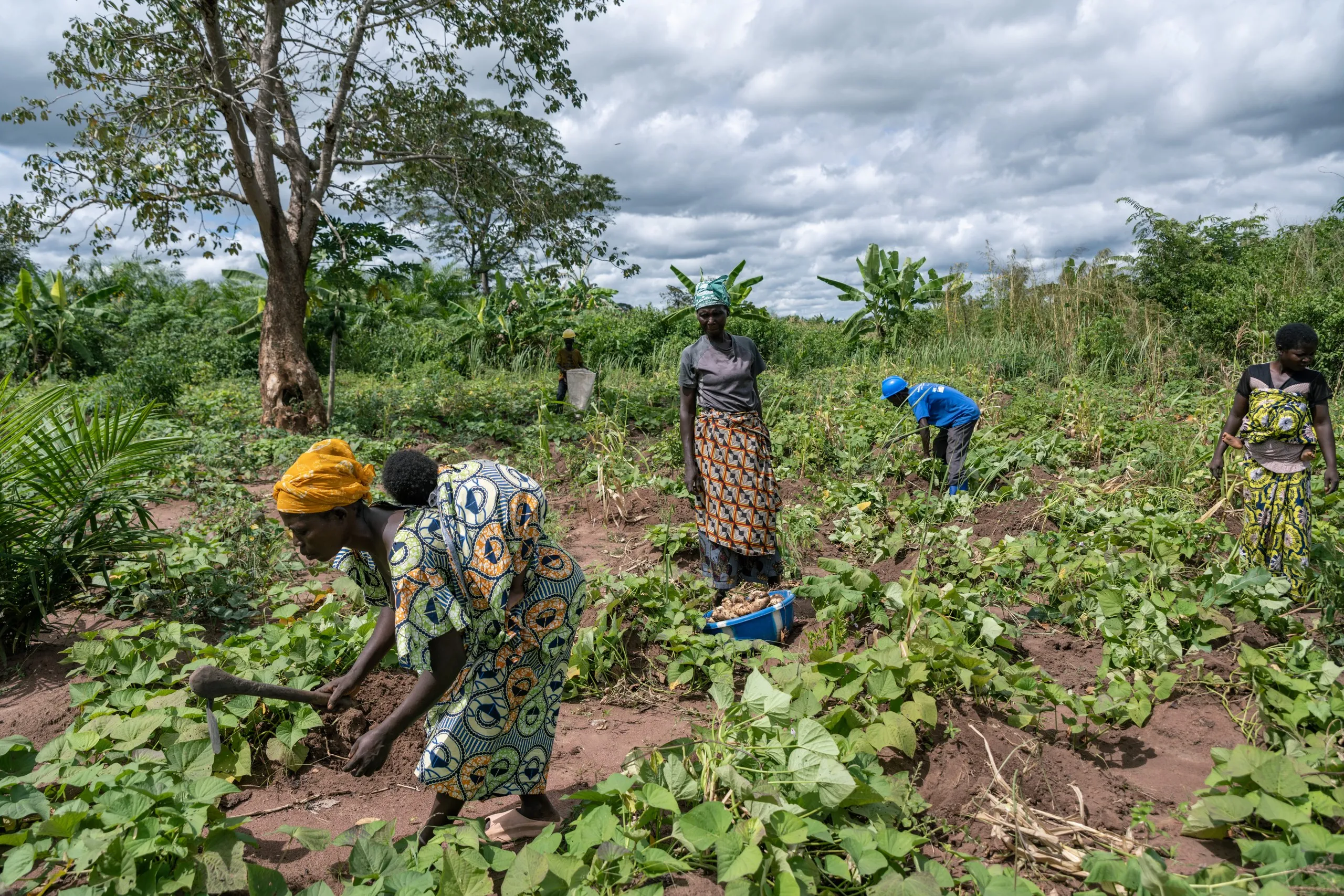
“I was a poor widow with nothing. Thanks to the group, I bought land, built a house, and regained my dignity.”

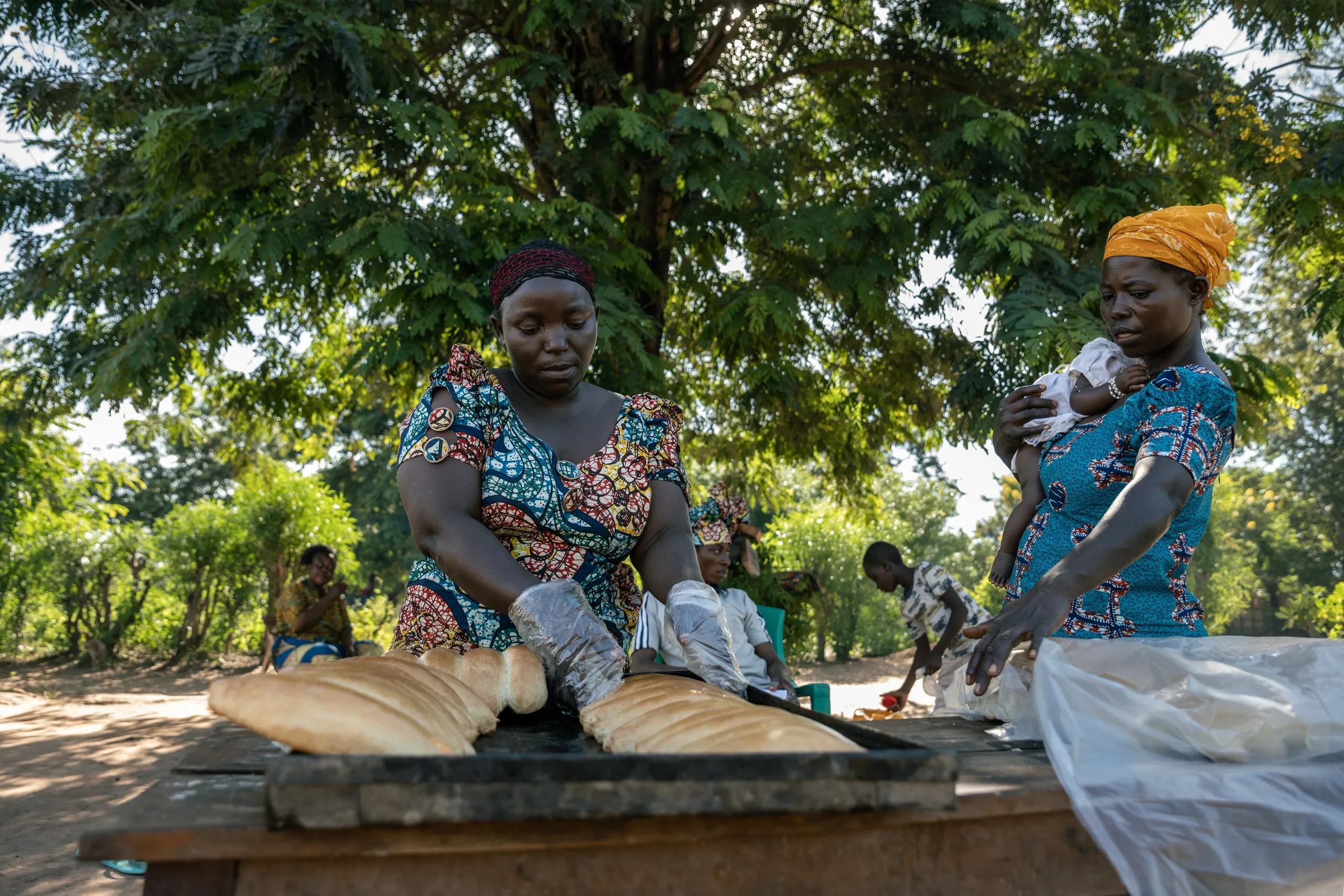
“I was a poor widow with nothing. Thanks to the group, I bought land, built a house, and regained my dignity.”
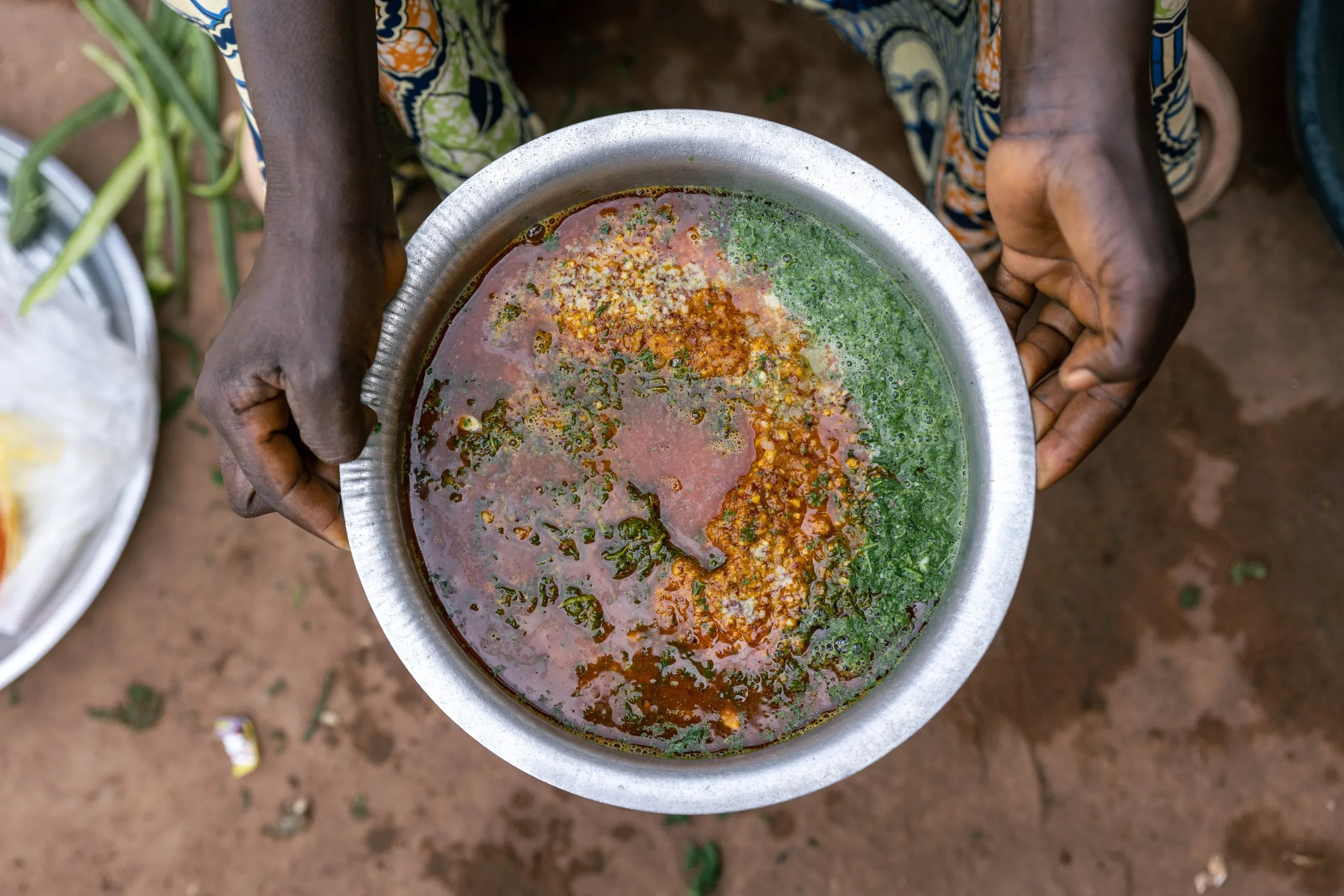
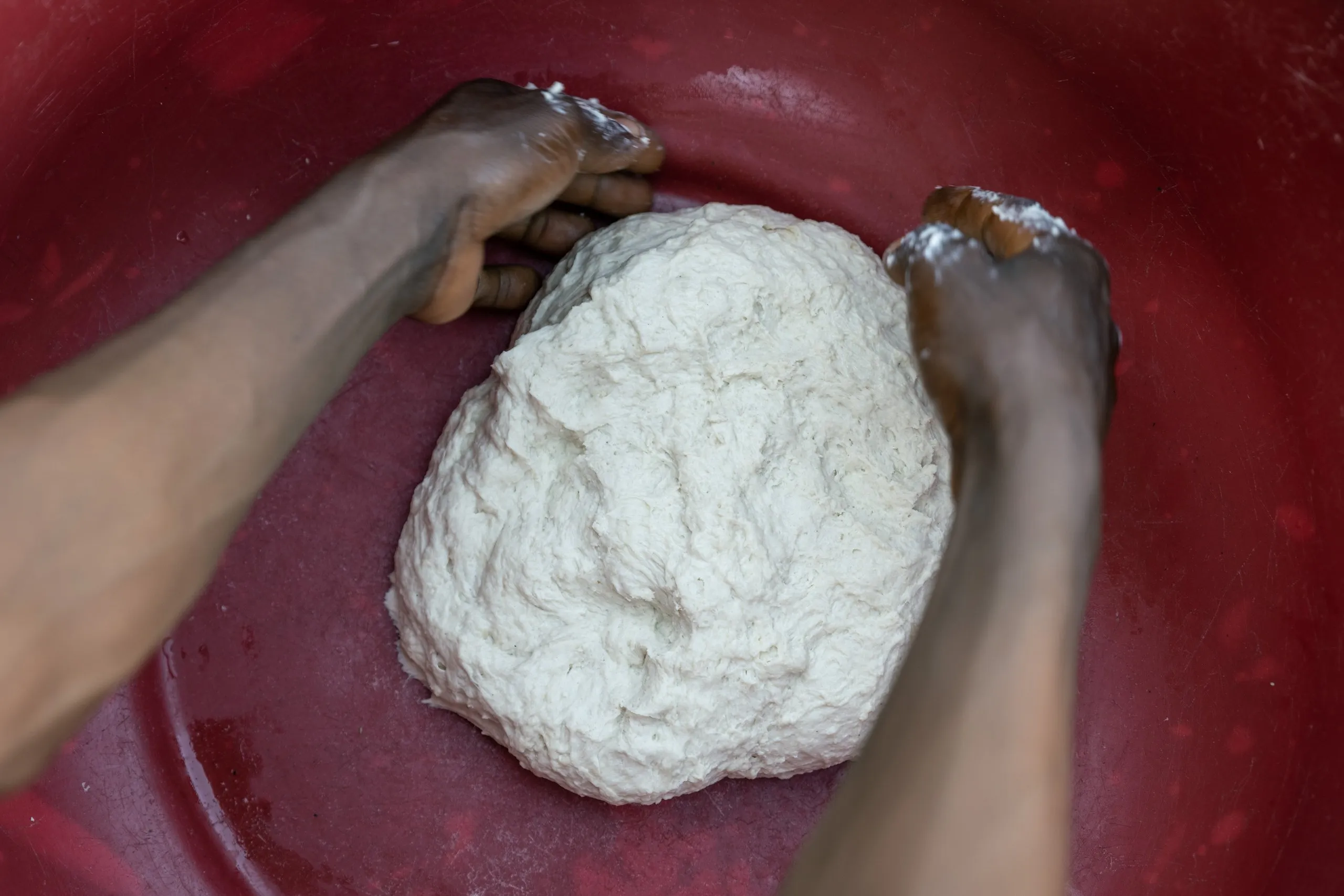
“Before, we farmed just to survive. Today, we know how to store, sell together, and invest in the future.”
